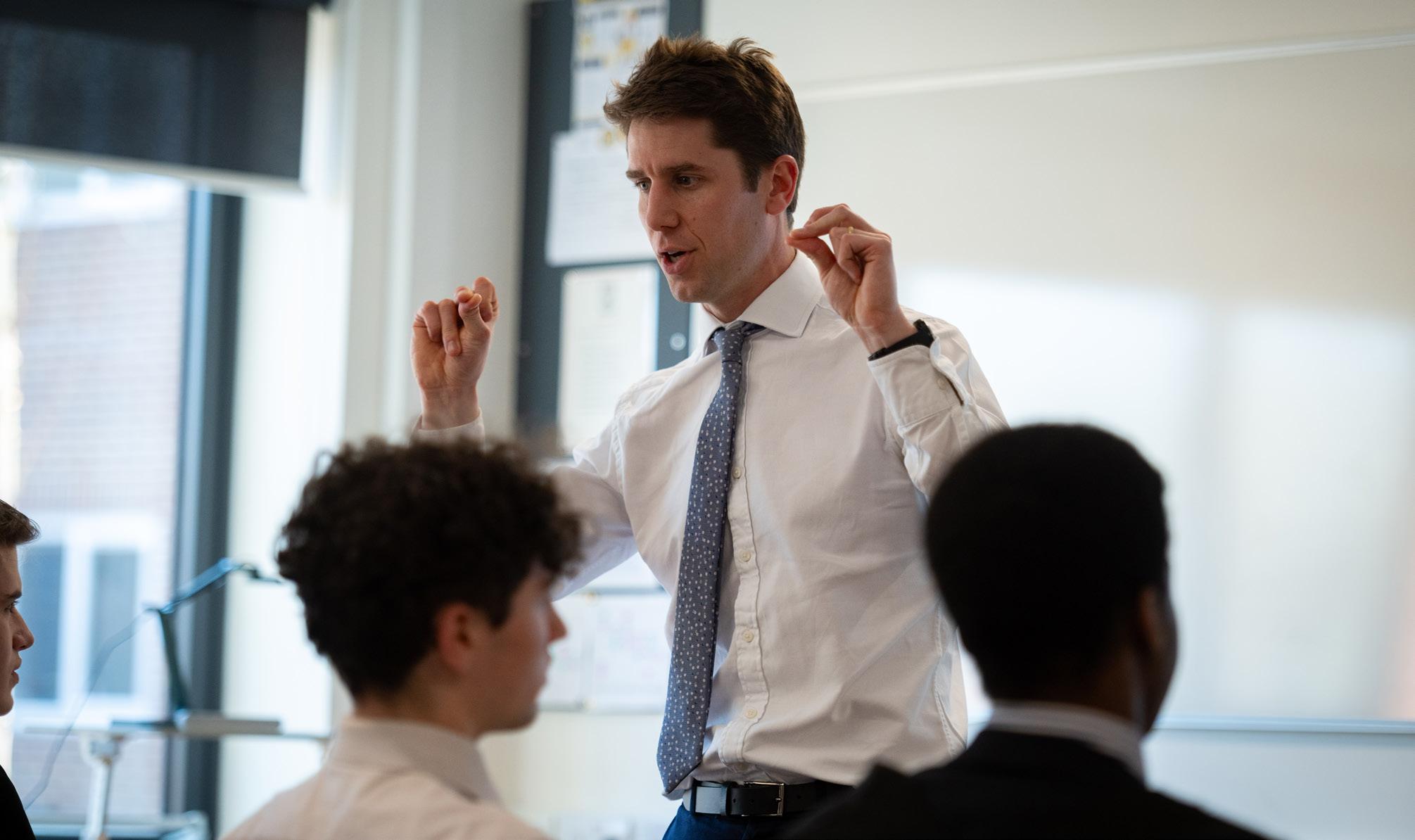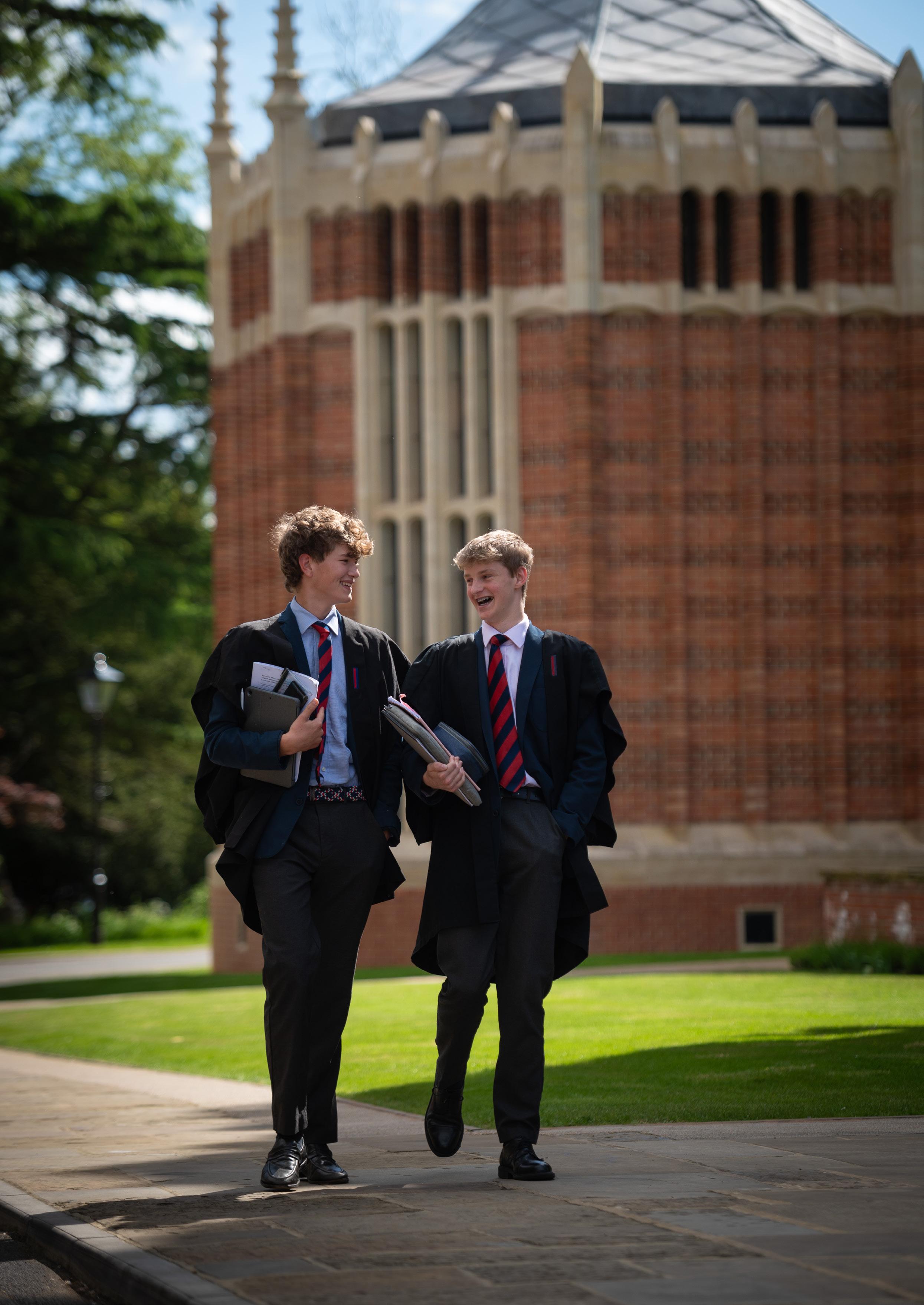

INTRODUCTION
The educational course at Radley is designed to teach boys the value of hard work and an intelligent management of time.
We aim for breadth in a boy’s academic programme, we try to ensure intellectual stimulus both inside and outside the curriculum, and we seek to achieve an easy command of, and familiarity with, Information Technology.
We also endeavour to train Sixth Formers in the ability to research and synthesise information for themselves, to learn independently.
Beyond that we hope to awaken in Radleians an appreciation of literature and the arts so that they can gain real pleasure from pursuing these interests in their adult lives.
When a Radleian leaves the Sixth Form, it is expected that he will have those attributes necessary both to command a worthwhile place in Higher Education and – beyond that – to compete effectively in the market place for jobs in the 21st century.
We have recommended three A-Levels as the standard model (four if one is Further Maths). In addition to taking his A-Levels, every boy will be expected to participate in our Curriculum Extension Programme. Other than a combination that includes Further Maths, it is possible to study four subjects but please be aware that doing well in three subjects will be more attractive to universities than doing less well in four. Each subject will have 15 periods taught per (72 periods) cycle; i.e. 60 taught lessons plus at least three periods of extension classes. Curriculum Extension Program (CEP) choices will be taken at a later stage.
We aim to equip boys to:
be more independent in their thinking and practice
take greater ownership over their academic work
be able to make a successful transition to university level study
engage fruitfully in extension work of their own choosing
tailor their study to particular interests, which may or may not emerge from existing A-Level study
investigate subjects or areas not covered specifically in Radley’s A-Level options (e.g. Medieval History, Business and Finance, Robotics) through elements of the Curriculum Extension Programme, helping boys to decide whether or not to study them at university
We aim to:
make an externally recognised extension qualification (EPQ) available for a Radleian’s UCAS application, thereby:
providing quantifiable evidence of a boy’s academic aptitude and potential, which can be used in combination with predicted A-Level grades
demonstrating to universities a boy’s ability to pursue independent study
providing an opportunity for certain universities to reduce grade offers based on the attainment of a specified EPQ grade
adding greater academic ‘punch’ to a personal statement
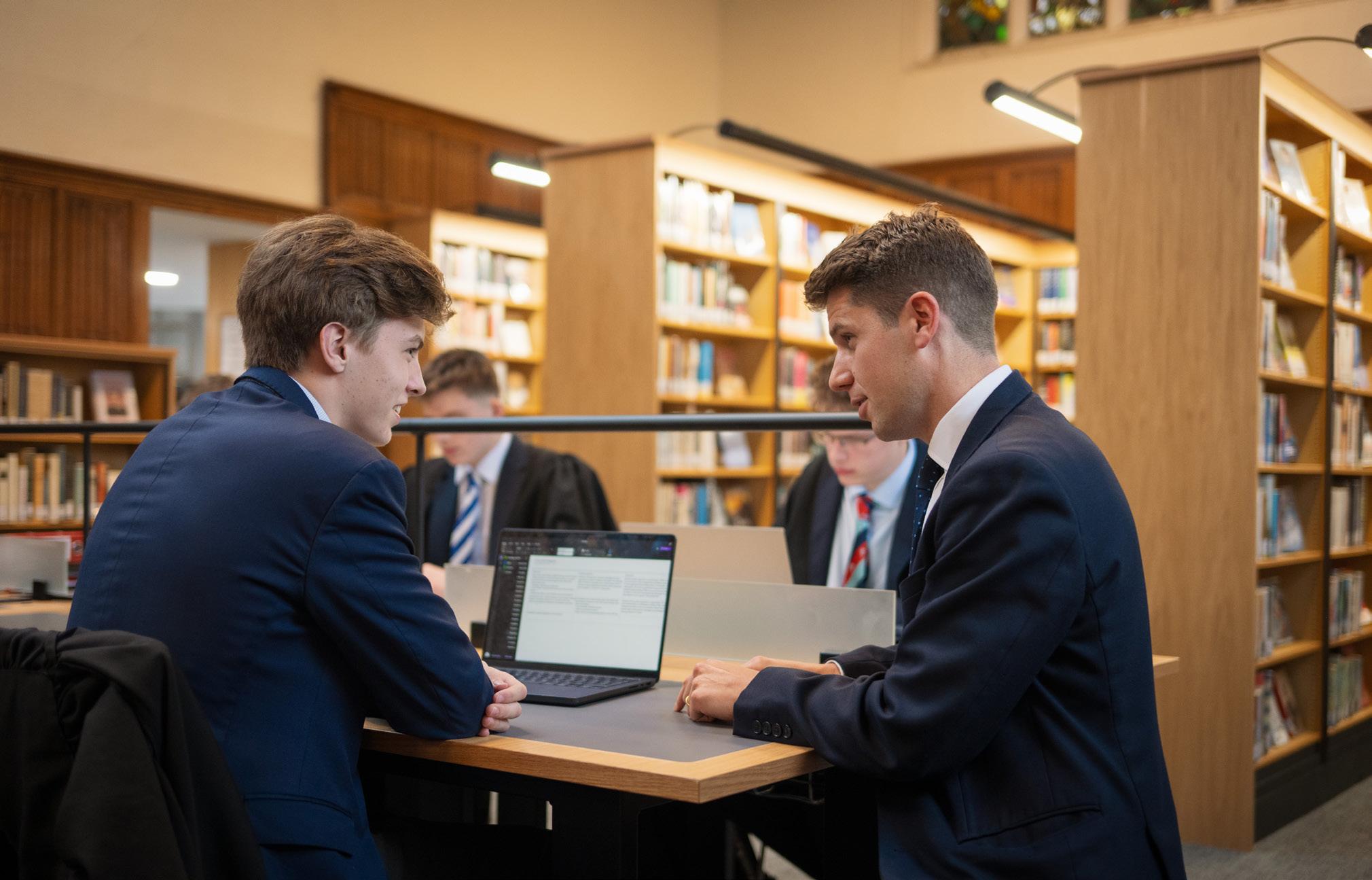
TIMELINE
Boys are briefed on subjects which are only offered at A-Level.
Parents encouraged discuss choices with boys during the Christmas holidays.
Fifth Form meet with the Deputy Head (Academic) about their choices. They submit their preliminary selection online. Ongoing discussion of preliminary choices by boys, Form Masters, Tutors, Heads of Department, the Deputy Head (Academic), and the Director of University Entrance (with flexibility until September).
The Parents’ meeting is held to confirm or review boys’ initial choices.
Boys and Tutors make revised choices, if necessary. We like these choices to be as firm as possible to assist with the planning of staffing and timetabling, although there is, of course, flexibility for change thereafter.
For exact dates, please see the calendar
CHOOSING A-LEVELS
We offer a four block system which caters to as many A-Level combinations as possible. Blocks are essential if a school is to undertake setting, which we believe – with the backing of considerable academic evidence – is vital to enable boys to progress and excel at a pace appropriate to them. No block system can provide for every conceivable combination and, in a small number of cases, some boys will need to revise their initial preferences. Advice is available from Form Masters, Heads of Department, Tutors and the Head of University Entrance.
In timetabling five academic years across the 13-18 age range, it is sometimes impossible to staff a particular subject’s lower and upper school teaching programme, which would be the consequence of block changes made to accommodate requests for combinations which don’t work with the blocks as presented.
*Further Maths technically counts as two A-Levels, but requires approximately only 75% of the teaching time of two subjects.
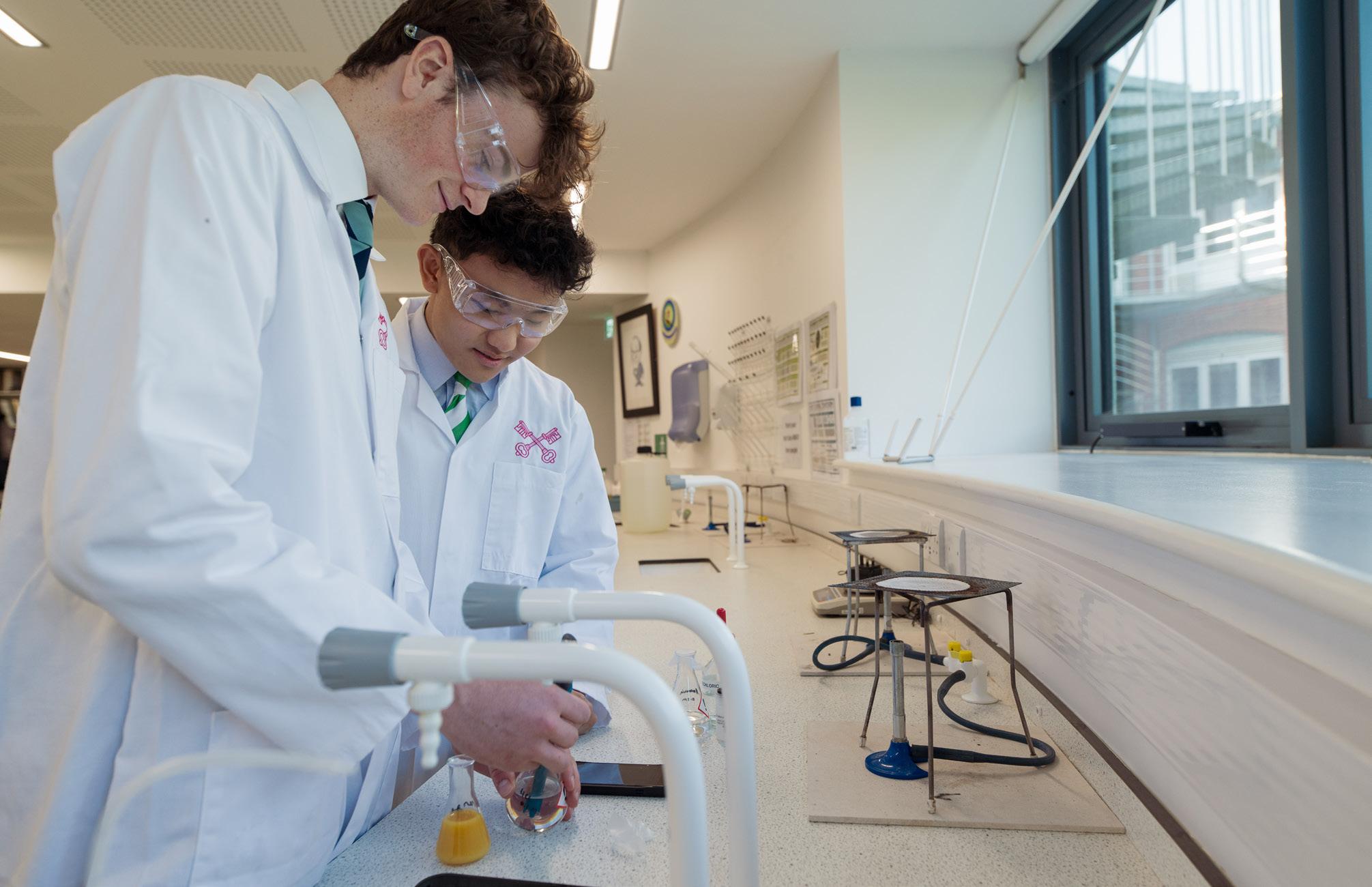
OPTION BLOCKS
Drama and Theatre Biology Art Biology
English Economics Chemistry Classical Civilisation
French English Economics Computer Science
History of Art French Geography Design
Latin Music Greek Earth Science
Mathematics Physics History Geography
Sports Science Politics History of Art German
Theology and Philosophy Spanish History Latin Politics Spanish
Theology and Philosophy
NOTES
Only ONE subject can be chosen from each block.
Maths and Further Maths: those taking these subjects will be taught in block 1 and in lessons that fall outside the blocks in order that the maximum number of different sensible combinations of subjects alongside these two is possible.
Any boy taking Single Maths should be guided by the department. Not every boy at Radley has the ability to get a high grade in A-Level Maths, however hard he works. As a minimum, a boy taking A-Level Maths must have achieved an 8 or a 9 in IGCSE.
Any boy taking Further Maths, and who has been at Radley for three years, should have achieved a 9 in IGCSE a year early and a 9 in AQA GCSE Further Maths.
For Computer Science, pupils should have achieved an 8 or a 9 in GCSE. Exceptions could be made for those with portfolio evidence of high programming skill, preferably in Python.
For Sports Science, pupils should have a keen interest in sport and performance, be regularly involved in competitive sport either within Radley or through clubs and other external opportunities, and be comfortable engaging with the scientific ideas that underpin training, performance and wellbeing.
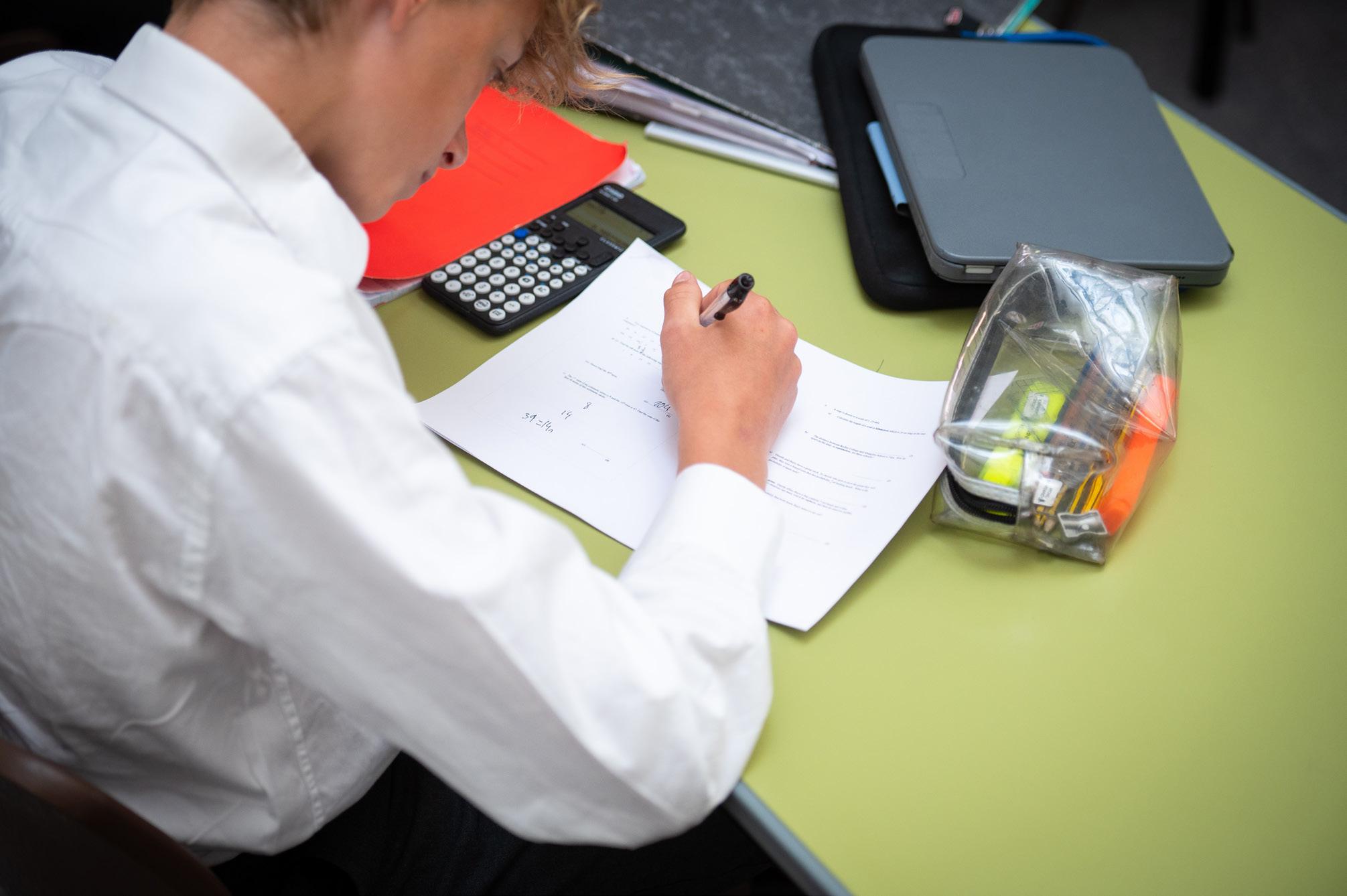
PRINCIPLES OF CHOICE
It should be noted that there is a very large variety of exciting A-Level combinations, which can lead to the study of a wide range of stimulating courses, at top-class universities. It is important to do careful research and to take care to avoid myths or out of date information. For example, a potential doctor or dentist must have Chemistry at the core of his A-Levels, but a lawyer does not need to have a set of purely ‘essay subjects’ at A-Level, nor do those wanting careers in the financial sector necessarily have to do Maths and/or Economics at A-Level.
We also know that boys can enter an equally wide variety of highly successful careers as a result of those courses. These issues are addressed in detail at the February Fifth Form Parents’ Meeting, although boys will have been advised about these matters and asked to make initial choices by online poll early in January. It is accepted that a few boys will not settle fully upon their choices until early in the Michaelmas term of their 6.1 year, though of course it is far better if firm and informed choices can be made before then.
In guiding choice it is important to note that:
Where a boy is undecided about the future, his choice will quite naturally be determined by his interest in, and aptitude for, various subjects. There is little to restrict the choice of the non-scientist, though various combinations of subjects are often followed and have been found advantageous. Advice is given on these.
A boy with scientific ambitions may find his choice of A-Level subject rather more restricted. For the study of Medicine, good grades are required in Chemistry, and usually in Biology with Physics or Maths. Anyone considering a course in Veterinary Science must take Chemistry, and is strongly advised to take Biology since it is now required by the majority of Veterinary Schools. For Engineering, Maths and Physics are required A-Level subjects. These may be combined with Further Maths, Chemistry or Design. By contrast, entry to the Services, the professions, teaching, the Civil Service, business and industry rarely requires a particular A-Level subject.
If a student is unsure about which A-Level subjects are needed for a particular university course they should visit https://www.ucas.com or speak with the relevant Head of Department or the Director of University Entrance.
INTERNATIONAL UNIVERSITIES
Most boys will apply to UK universities through UCAS during the Sixth Form. We would also strongly encourage all boys to consider applying to university outside the UK. There are many benefits to studying abroad:
If you are fluent in a language, what better way to reach native-speaker level than to live and study in a country that speaks it? (If you are not fluent, many courses are taught in English even if that is not the primary language of the country – you can learn the language during the rest of your time there.)
Tuition fees and cost of living can be very much less than for UK higher education.
Immersing yourself in a different way of life prepares you for the increasingly international marketplace.
You will probably come out the other end a much more rounded person than would be the case if you went to a UK unveristy with twenty other Radleians for three years!
Usually, it is not too onerous to apply to both UK and international universities. We raise this matter at this point because it may be a significant change from what you thought you had planned for life after Radley – better, therefore, for you to consider it now before making any firm decisions.
Dr Maria Lebedeva supports applications to American universities and Maud Hurley supports all other non-UK applications. They will be in touch with Fifths and parents around the time you are choosing your A-Levels to give more general information, but if you would like advice on a specific matter then please do email: ML.Lebedeva@radley.org.uk / MEH.Hurley@radley.org.uk
ART
Why study Art and Design at A-Level?
Artists notice things. Art is not just about aesthetics and beauty, it is really the study of perception. Unlike physical functionality or visual communication, it teaches how we see and how we read into what we see. It is both a physiologically, optical and psychological process. As a result students will learn to look for opportunities and connections across many diverse areas in terms of spatial awareness and visual acuity. The aim is to create a strong connection between the handling of materials and visual awareness that comes from seeing. In the age of AI the relevance of Art has never been more important in producing students who are rounded, can think laterally, handle abstract concepts and can repurpose themselves through creativity.
A-Level Art and Design is a practical course over two years, supported by a written element. Studying A-Level Art and Design allows students to develop an exciting and extensive range of creative and technical skills. Furthermore, students will gain a strong understanding of art history and contemporary visual art practice through supporting contextual studies. Unique to studying Art and Design at A-Level, students create a personal portfolio of individually explored practical work inspired by a theme of their choice. Whenever possible, students are encouraged to research and respond to the work on show in the Sewell Centre Gallery, attend the many talks given by visiting artists, review work and read journals and periodicals available in the comprehensive art library and use the Art Department’s computers and iPads for research, all to help put art into a context as this is an integral part of the examination curriculum. There is a weekly drawing class, working from first-hand observation in a range of materials, and scholars’ weekend workshops, designed to provide Radleians of all abilities with the opportunity to explore and develop their creativity. The Art Department also runs several trips to provide stimulus outside the art studios and to further engage the boys in a broader range of visual experiences. During the last three years, these have included Florence, Rome, Venice, and New York, as well as numerous visits to galleries and exhibitions within the UK.
Studying Art and Design at A-Level often leads to boys going on to read Art and Design in its many different guises at university or art college, followed by a creative arts career beyond further education. As the creative industries move into first place to be the fastest growing economic sector in the UK, responsible for 5.6% of jobs, and worth £76.9bn to the UK economy, studying the subject is to be celebrated. We are very proud of the increasing number of successful OR artists, including a BAFTAwinning film producer, an Oscar-winning illustrator and animated short filmmaker, as well as the myriad of sculptors, painters and printmakers, media technicians, fashion and jewellery designers, graphics and special effects producers, gallery and museum curators, architects and craftsmen.
What are the key features of the Art and Design A-Level course?
The A-Level Art and Design course is split into two parts. Firstly, students undertake a personal investigation into a specific theme, issue or concept supported by written text. The focus of the investigation leads to a finished outcome or a series of related final pieces. This may include painting, mixed media, sculpture, ceramics, installation, printmaking, moving images and photography. There is also a particular emphasis on good academic drawing.
Secondly, in the Lent Term of 6.2, the students are given an externally set assignment from which they choose a theme from a selection of starting points. From this title, boys will create preparatory work leading to 15 hours of unaided but supervised time, during which they will create a final outcome. The A-Level is often completed at the beginning of the Summer Term and before the rest of the exams begin.
You can read the full specification here.

BIOLOGY
Why study Biology at A-Level?
Possibly to get into higher education or to pursue a particular career, but above all because you are interested in studying this challenging, innovative, practical science and because you enjoy it. A-Level Biology is recognised and valued by universities whatever course you ultimately apply for. Students from any set can try the course but will find it difficult without Grade 9s in GCSE Dual Science or 8+ for Triple. Biology is a great subject to have studied whatever your chosen career path. It helps you get into Medicine, Biomedical Science, Veterinary Science and Natural/Biological Sciences. There are also exciting new opportunities in the expanding fields of Food Science, Biotechnology and Genetic Engineering. While some people choose to stick with Biology after university, the vast majority go on to work in Law, Industry or Finance where the analytical skills they have acquired during their Science degree are highly valued and help them stand out from the crowd. We expect enthusiasm, hard work, determination, initiative and willingness to complete work set and submit it on time. A liking for reptiles, etc, is desirable but not compulsory!
Biology is often combined with Chemistry, Maths, Physics, Economics, Politics and Geography but good universities see it as a subject that helps with degrees in almost any subject area. University candidates applying for Biological Sciences would normally be expected to have studied Chemistry and maybe even Mathematics at A-Level. Potential Medics, Vets, Oxbridge candidates or anyone else with queries about Biology should come and speak to the Head of Department.
What are the key features of the Biology A-Level course?
We offer the new OCR Exam Board syllabus. Students chose it with us and enjoy it because it incorporates many cutting-edge discoveries and reflects the way biology is used in the real world. The academic learning style is well balanced by a series of integral practical tasks which means there are no essays or extensive coursework write-ups. The 6.1 year consists mainly of topics like: Cells (including structure, diversity and organisation); Biological Molecules (including nucleic acids and enzymes); Food & Health; Biodiversity; Classification & Evolution; and Conservation Biology. The year ends with a compulsory five-day field course (charge about £175). As well as getting ahead with lots of 6.2 work, we find time for a day on Skomer Island (vast seabird colonies, 40,000 puffins alone!), speedboat plankton sampling on the open sea and, weather permitting, some time on the beach! This is a great way to cover Ecology work and also many other practical and mathematical elements of the course. The sorts of topics studied in the 6.2 year are: Communication, Homeostasis & Energy; Cellular Control & Variation; Biotechnology and Gene Technologies; Ecosystems & Sustainability; and Plant & Animal Responses to the Environment. Biology is assessed with 3 written exams taken at the end of 6.2. 15% of each exam is based on practical work. We aim for all students to have the opportunity to join an Operation Wallacea expedition, usually to Honduras, during their Sixth Form studies.
The Honduras Expedition
Every two years the Biology Department plans a jungle expedition (currently to Honduras). This involves a week in a tropical montane cloud forest where we will help a group of biologists coordinated by Oxford University with habitat surveys, as well as seeing a variety of scientific techniques in use. There will be lots of challenging trekking and facilities are basic (washing involves a 15-minute walk to a cold mountain stream!) but it will be an amazing experience for all involved. As a ‘thank you’ for all our hard work, we then spend a second week scuba diving on the world’s secondlargest barrier reef.
You can read the full specification here

CHEMISTRY
Why study Chemistry at A-Level?
The world around us relies on chemical principles. Chemistry is considered the central science because it bridges physics, biology, material and environmental sciences. Chemistry uses many principle Physics, such as thermodynamics and quantum mechanics and itself is the tool that explains cellular processes.
Chemistry explains the composition, structure, and behaviour of matter. It helps us to understand phenomena such ice floating on water, the workings of medicines and why iron rusts on one level and the intricacies of the human body and new materials on quite another.
Chemistry drives innovation in medicine (drug development and vaccines), energy (sustainable fuels and batteries, materials (novel polymers, nanomaterials, and semiconductors and environment science (mitigating pollution and developing green technologies). Studying chemistry sharpens analytical skills in that it breaks down complex problems, hones qualitative and quantitative reasoning and applies scientific methods to real-world challenges. Chemistry opens doors to careers in research and development, healthcare, environmental science, engineering and education.
The A-Level Chemistry course provides a way into the subject and by developing practical experiences and intellectual stimulation is particularly suited to boys who are curious and want find out about the world we live in. Chemistry is also a requirement for some university courses, notably medicine.
What are the key features of the Chemistry A-Level course?
Chemistry is a popular choice for pupils in the Sixth Form with many boys going on to read Chemistry, Physics or related subjects at university. Boys regularly enter national competitions such as the RSC Chemistry Olympiad, C3L6 and the Schools’ Analyst Competition. Apart from fully equipped teaching labs the Chemistry Department is fortunate to have its own project laboratory in which Sixth Formers have the opportunity to carry out an independent research project. The Chemistry Society aims to bring together thoughts and ideas from Chemistry and neighbouring fields and organise regular lectures by prestigious academics. There are also Oxbridge and Olympiad groups for those Sixth Formers who are interested beyond the syllabus.
We currently follow the Edexcel A-Level exam course. The top set will go far beyond this specification. As a result of the fact that the course builds on the knowledge, understanding and practical skills that are developed in GCSE, it is expected that pupils will have taken Chemistry at this level and preferably Triple Award (although a Dual Award qualification or Trilogy will be accepted, but will require additional work during the summer holidays prior to starting the course and during the first term). Although not a pre-requisite, studying Mathematics A-Level alongside Chemistry is also highly recommended.
Chemistry is sometimes seen as a large body of facts that makes straightforward rationalisation difficult. While the former is true (just like any language) the Chemistry course and Chemistry teaching at Radley aims to bring together the various facts and ‘vocabulary’ to unify them in to what is ultimately a coherent and logical story that seeks to explain the nature of matter and its reactions. The goal is to instil a passion and reflection on the nature, history and philosophy of science and to encourage the interested boy to be confident in independent further study of the subject. Over the two years, all the work defined in the specification is taught in an integrated and logical way. However, material outside this is also covered wherever it helps in the understanding of the chemistry involved or reflects the interests and talents of the students. Chemistry is a mature science that seeks to describe the complex aspects of nature, and complexity is mirrored in the subject. As a result, successful boys will necessarily work hard and committedly in order to fully enjoy the subject and get the most from it. Regular revision alongside the teaching is therefore essential.
You can read the full specification here
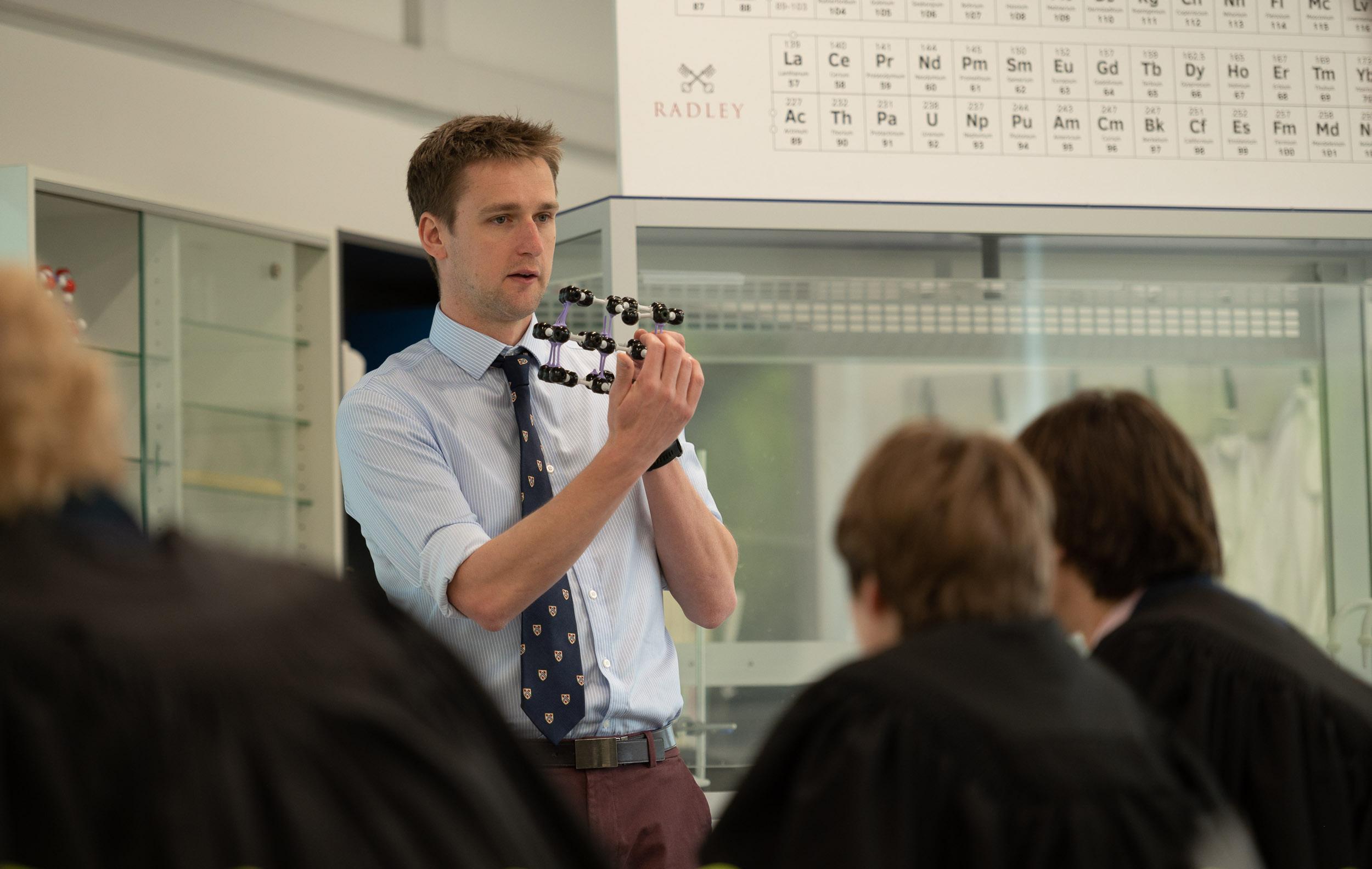
CLASSICAL CIVILISATION
Why study Classical Civilisation at A-Level?
Civilisation is an A-Level that will particularly appeal to candidates with an interest in the Classical World but less desire to study, or aptitude for, the Greek and Latin languages. Material studied is a mixture of literature in translation and historical and archaeological sources and is tested through a variety of essays and shorter questions. It is a great A-Level for those who want to extend their knowledge of ancient literature and culture, to reflect on the foundations of the modern European world - and to reflect on the modern world in a better-informed position as a result.
What are the key features of the Classical Civilisation A-Level course?
We use OCR’s courses for Latin and Greek, and Classical Civilisation. The Classical Civilisation A-Level is split into three modules: The World of the Hero; Greek Religion; and Greek Theatre. In the 6.1, we study all of Virgil’s Aeneid, with a number of books studied in particular detail for context questions. In the 6.2 we complete this section of the course by reading all of the Odyssey. There is a small amount of overlap with the GCSE course in which several books of Homer are read, but much more is covered and in much greater sophistication and detail in the A-Level course. Greek Theatre includes reading Greek comedies and tragedies in translation as well as looking at the cultural framework of ancient drama. Greek Religion builds on the GCSE Myth and Religion topic looking in a lot more breadth and depth at the religious beliefs and ideas of the ancient Greeks.
It is very much possible for boys to start the subject from scratch at A-Level, and plenty of Radleians have done this over the years. On the other hand, having studied the subject at GCSE is obviously a helpful starting point in having an idea of the bigger Classical picture. Classical Civilisation works well as an A-Level in combination with a great many other subjects.
You can read the full specification here.
CLASSICAL GREEK
Why study Classical Greek at A-Level?
An A-Level in Classical Greek complements Latin A-Level perfectly as a preparation for a degree in Classics but can be studied in its own right. Indeed, in recent years, we have enjoyed teaching boys who have taken Greek alongside maths and science subjects, for example. The format and appeal of the course is as for Latin, with recent authors studied being Homer (The Odyssey), Sophocles (Euripides), Thucydides, Herodotus, Xenophon and Plato (The Apology). The linguistic side of the course is particularly challenging, but similarly very rewarding for the right kind of candidate. It is essential to have studied GCSE Greek as a preparation for the course. Unsurprisingly, the A-Level offers a real academic cachet and is very well regarded on a UCAS application.
You can read the full specification here
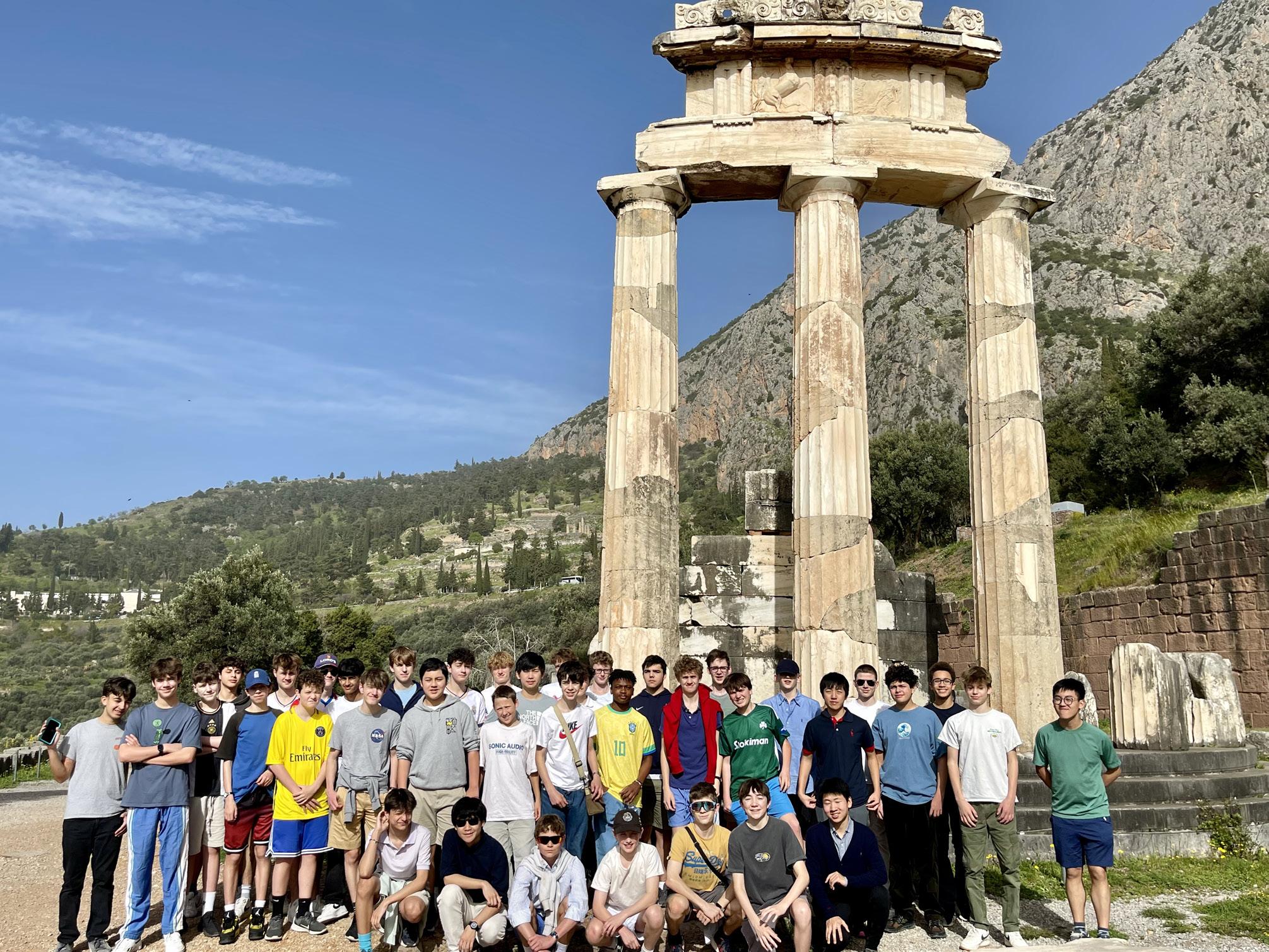
COMPUTER SCIENCE
Why study Computer Science at A-Level?
Computer Science is the beating heart of the modern world. Even individuals who will not become software engineers require understanding of the possibilities and limitations of our rapidly evolving digital world. Computer Science is a gateway to enriching careers and also a fantastic supplement to the sciences and to data analysis in every domain. For some of those intending to study Computer Science at university, while not essential for entry (the prerequisite is always Maths) the A-Level will nevertheless garner lower entry requirements. Computer Science is primarily the art of learning to think computationally – skills that reach far beyond the silicon of the processor. This highly rational approach to problem solving is a sought-after career skill. Combined with enrichment in our successful Robotics program and participation in other national events and competitions, the course is a solid foundation for future success in a range of disciplines.
Boys who choose the A-Level in Computer Science will have thrived at GCSE with an 8 or 9 and should greatly enjoy problem solving. They will likely already be coding in their hobby time and starting to produce their own software projects.
Computer Science taken alongside Maths is a natural partner to numerical and statistical subjects in both the sciences and humanities. The subject will be in a floating block for the coming year to maximise the opportunities for boys.
Boys taking the course will require a laptop which may be PC, Mac or Linux based. It should be capable of running modern software without significant lag but need not be hugely powerful. The department can advise on the suitability of any device.
What are the key features of the A-Level course?
The AQA A-Level course builds rapidly from the fundamentals covered in the GCSE, deepening knowledge of fundamental concepts in data, binary mathematics and logic. New algorithms and advanced data structures including graphs, hash tables and binary trees provide a basis for practical project work and theoretical understanding. A thorough understanding of the functional programming paradigm is built alongside developing new skills in big data, databases and networking, presenting a wide spectrum of digital paths for future learning.
The chosen language for the course is Python 3, building on the skills learned in the Radley GCSE. The course requires some exposure to other languages, including Assembly, and functional languages such as Haskell and Lisp.
The course is assessed across two exams and a non-exam assessment. Boys will undertake the planning, building and documentation of a substantial programming project worth 20% of their final mark. Paper 1 is a 2.5 hour on-screen exam worth 40% of the course and covers programming, data structures and algorithms along with theory of computation. Paper 2 is a 2.5 hour written exam which covers the rest of the course including data representation, computer system architecture, networking and databases, big data and the fundamentals of functional and structured programming.
You can read the full specification here

DESIGN & TECHNOLOGY
Why study Design & Technology at A-Level?
The knowledge and understanding you get from D&T projects give you transferrable skills that you can apply to solving real issues in the real world. Collaborative working, iterative design approaches, planning and problem-solving are skills you can put to use in a vast range of career options.
Careers for the future: Technology is developing all the time and keeping up with fast-paced change is essential. The jobs people will be doing tomorrow will be radically different from many of those done today. Future-proofing your prospects is essential if you are to have control over your choices. A-Level D&T opens doors to a wide range of careers in the creative, engineering and manufacturing industries as well as medicine, law and computer science.
The knowledge and skills you learn, such as teamwork and time management, will be valued by employers. Creativity and innovation: create fantastic designs and make brilliant products. D&T is purposeful, but it’s also exciting and fun! Studying D&T will involve you in learning about designing and manufacturing, using your knowledge and skills to design and make new and better solutions to real problems – on your own and with others – working with the materials you choose.
What are the key features of the Design & Technology A-Level course?
You will study a broad course, which builds on the core of what you have been taught across the GCSE and focuses on the designing and making of products including materials like timbers, metals and polymers, as well as papers and boards and even some electronics and fabrics. Students should ideally have followed a GCSE D&T course.
Product Design is all about designing and making products in an innovative and creative way. It’s about learning how things are made. You will be designing and making a solution to a problem set by the department through designing, modelling and practical sessions utilising the subject knowledge that runs alongside it.
Year 12 is used to build a foundation of new content through some high-level A-grade style projects which will stretch and challenge you to produce something amazing and get your teeth into! It will give you a strong basis of knowledge, skills and folder work, which can then be applied to the coursework element in Year 13 which we start at the end of Year 12. This counts for 50% of your final grade. You will have to produce a portfolio which demonstrates your ability to research, design, develop, make and evaluate your product of choice. The remaining 50% is covered in a final examination covering the theoretical aspects of the subject including material, CAD, CAM, design strategies, designing for a cleaner environment, user centred design and the circular economy, to name but a few.
You can read the full specification here.
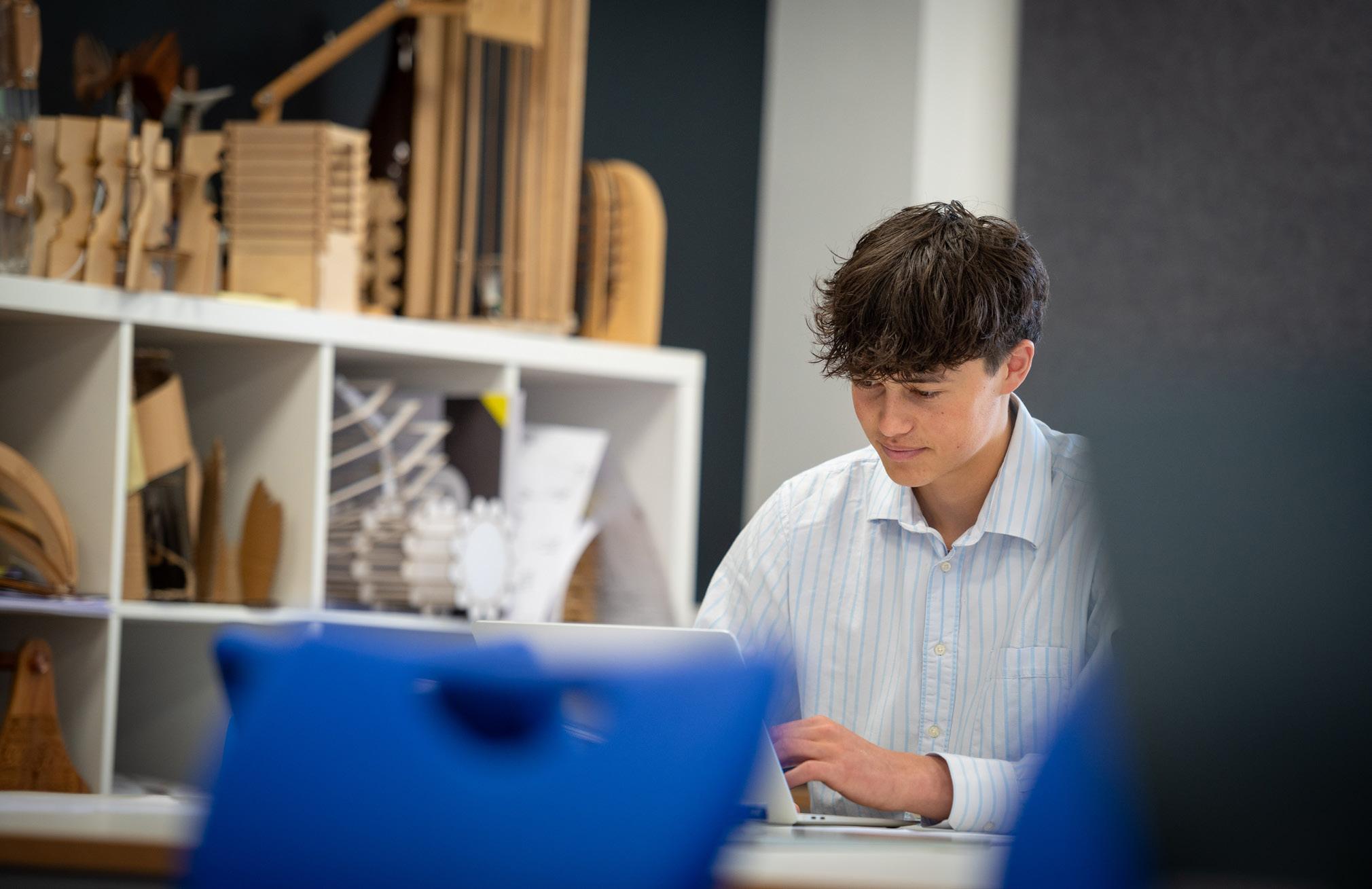
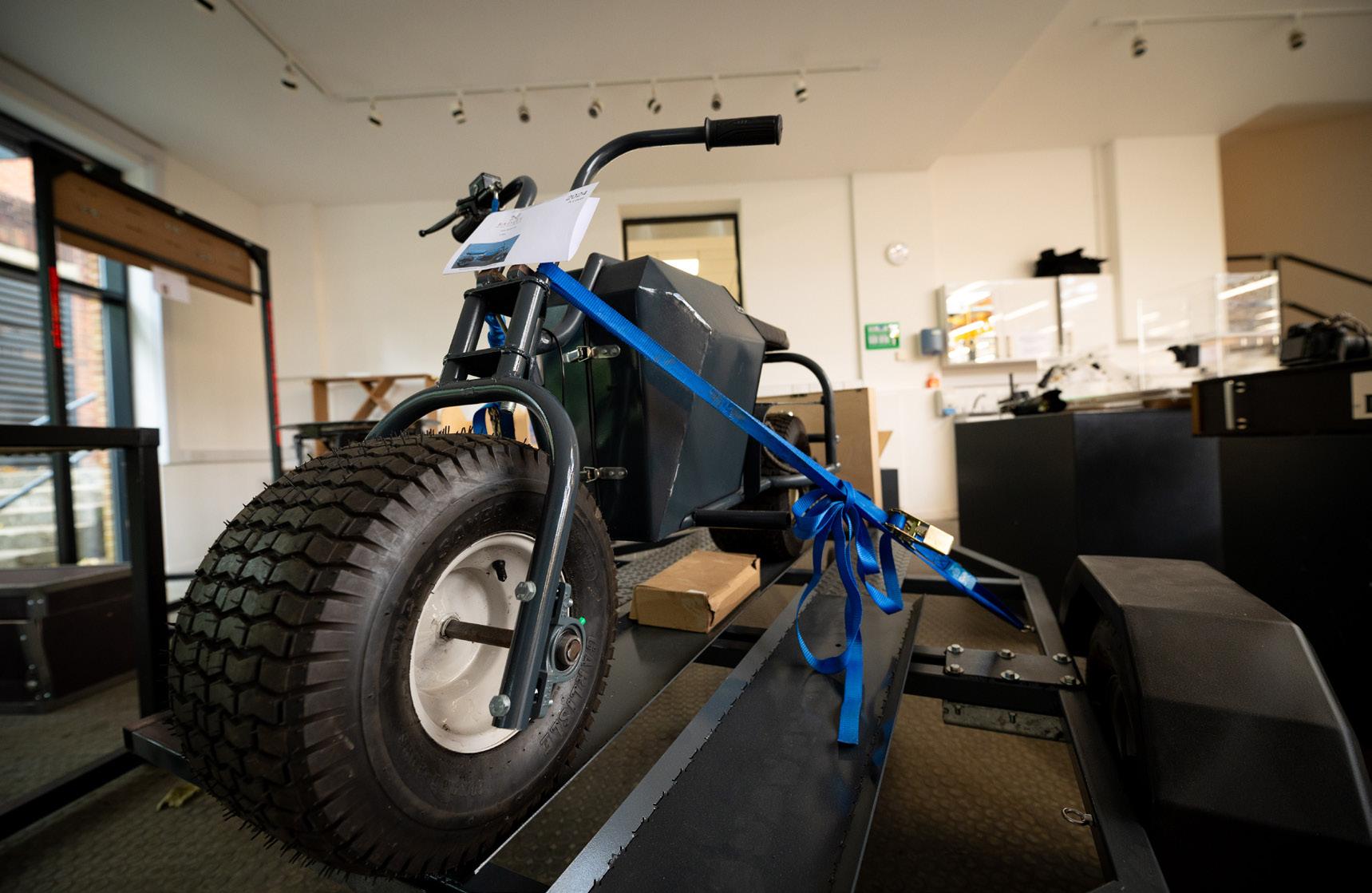
DRAMA AND THEATRE
Why study Drama and Theatre at A-Level?
Drama and Theatre is a subject that develops and nurtures key skills that are essential in wider life. Many universities favour applicants who have taken the subject, as they will have such attributes as keen analytical skills, emotional intelligence and the ability to work collaboratively. These skills are also, of course, highly relevant in the workplace.
During the course, pupils develop a strong sense of self-confidence and self-awareness, as well as honing their written and reflective abilities. Although practical performance work is at the heart of what the course entails, many of the marks come from well-structured and highly analytical written work. This ensures that students finish the course with a wide range of attributes.
What are the key features of the Drama and Theatre A-Level course?
At A-Level, the requirement for an in-depth understanding of performance and intention for an audience is highly valued. This is assessed through both practical and written work. Students will have the opportunity to extend their experience, understanding and knowledge of the following components:
• Directorial Knowledge of Set Texts and Analysis of Live Performance
• The Process and Practice of Devised Work
• Performance and Evaluation of Scripted Work
Component 1 – Directorial Knowledge of Set Texts and Analysis of Live Performance
40%, assessed externally through a written examination
In this component, students will need to answer in-depth questions about two set texts. We are currently using Jerusalem by Jez Butterworth and Our Country’s Good by Timberlake Wertenbaker from the prescribed list provided by the exam board. In addition, the final question asks pupils to reflect upon, analyse and evaluate a live theatre production that they have seen. To achieve high marks, students must be aware of the social, cultural and historical context of the plays in question as well as having a thorough understanding of the plot, themes and characters therein. They will also be able to write fluently and use complex vocabulary to communicate their meaning concisely and precisely.
Component 2 – The Process and Practice of Devised Work
30%, assessed internally through practical work and an associated working notebook
This unit requires pupils to work collaboratively as either a performer or designer to create an original piece of performance work inspired by a theatre practitioner. They must develop work that has a clear and sophisticated intention for the audience and this is an exciting opportunity for students to hone their imaginations and creativity. Alongside the practical work, an account must be produced, outlining the creative process and evaluating the finished product.
Component 3 – Performance and Evaluation of Scripted Work
30%, assessed externally through practical work and an associated reflective report
In this unit, pupils must stage three scripted extracts, each from a contrasting play. They may contribute as either a performer or a designer during the preparation and performance. As with the devised work, students must be influenced by the work of a theatre practitioner. This work gives students the opportunity to explore a range of characters or design requirements and also to gain a deep understanding of the social issues raised by the plays themselves. A reflective report is also a necessary part of this unit and must contain analysis and evaluation of the practical work that has been produced.
You can read the full specification here
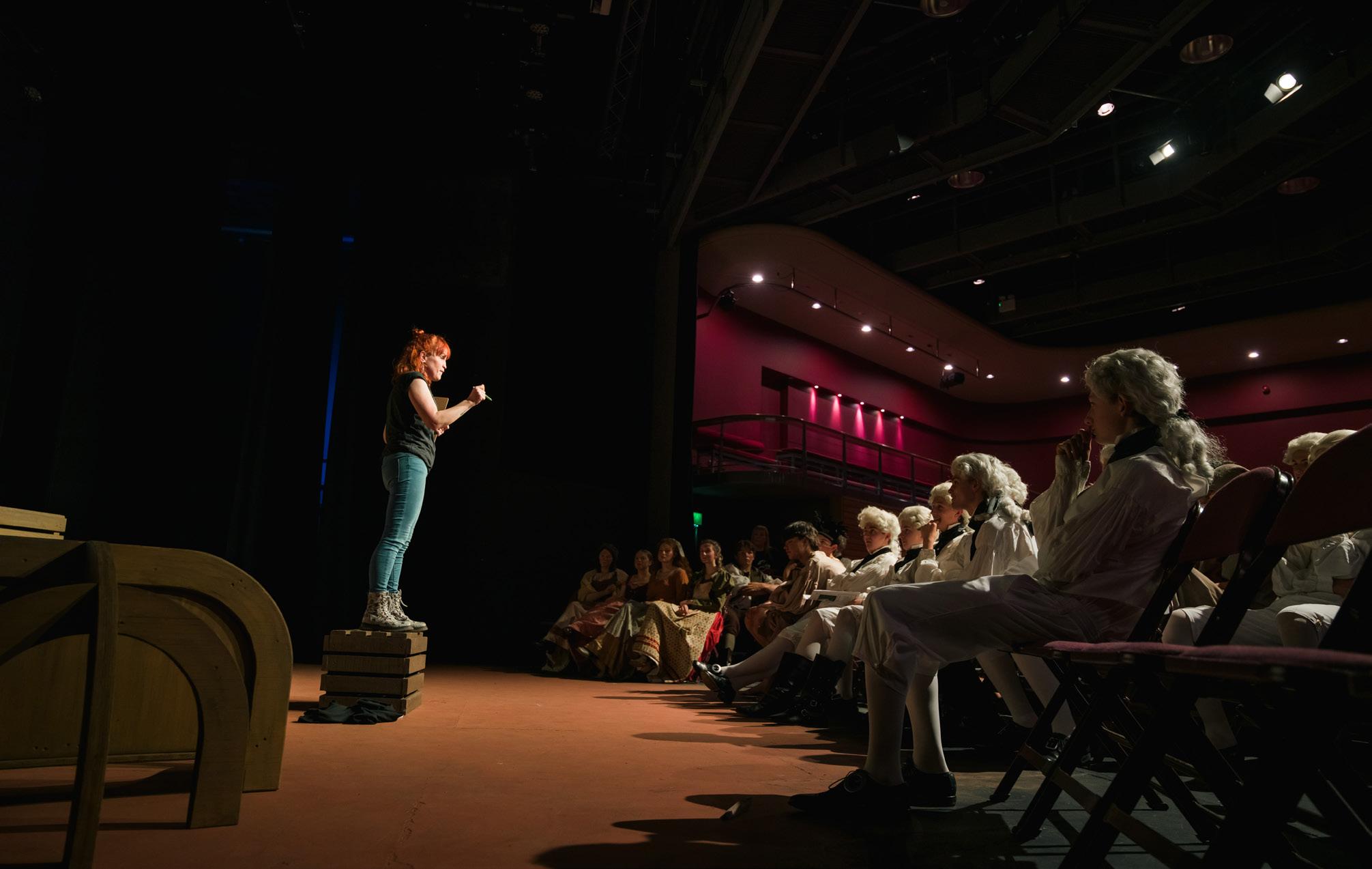
EARTH SCIENCE
Why study Earth Science in the Sixth Form?
An understanding of Earth Science has never been more important. Concerns about climate change, natural resources, and the rate of species extinction – to name just a few of the topics covered in the course – have been highlighted in recent news, and the study of this subject will give students a greater understanding of these and many other aspects of the earth, both past and present. Studying Earth Science in the Sixth Form can lead to a university course in Earth or Environmental Science which can in turn lead to Earth Science as a career: with our increasing dependence on renewable energy, Earth Scientists will always be in demand in order to locate reserves of the metals needed. A study of Earth Science will also improve skills of critical thinking.
What are the key features of the Earth Science course?
The course is highly practical, involving a study of rock, mineral and fossil samples to back up the theoretical aspects of the subject, and is arguably unique in that samples are used as part of the A-Level examination. Pupils build up a portfolio of practical work over the two years which contributes to the non-examined Practical Endorsement aspect of the course. There are also four days of fieldwork undertaken during term time, during which pupils carry out further work for their Practical Endorsement. The emphasis is on problem-solving rather than rote-learning, involving graphical and numerical data, geological maps, rock and mineral samples, fossils, and geological map analysis. At the end of 6.2, students sit the Eduqas exam board’s A-Level Geology.
Pupils spend most of the first year of the course learning the basics in the Fundamentals of Geology unit. Beginning with the basic building blocks of geology (minerals and rocks), pupils will learn how it is possible to determine environments (eg deserts, swamps, shallow tropical seas) that existed millions of years ago using rock and fossil evidence. We then study the effects of tectonic forces on these rocks to produce spectacular large-scale features such as mountain ranges. The study of fossils as evidence of former life preserved in the rocks gives fascinating information on the nature of ancient organisms. This links neatly with a study of how the age of geological events can be determined using radioactive methods and the evolution of fossils over time. The section on Fundamentals ends with a critical look at the evidence for the internal structure of the earth and the movement of tectonic plates, linking to a study of earthquakes and incorporating the latest findings from drilling into the ocean floor.
With an understanding of the basics, pupils learn how to apply these to the next section, Interpreting the Geological Record. Some more advanced ideas are added to concepts already studied, but some new topics are introduced including causes of and evidence for mass extinctions, evolution of life on land, and what can be learnt about how vertebrates such as dinosaurs may have lived based on a study of their fossil remains. This is followed by looking into the factors that have contributed to climate change through geological time, and the concept of the Anthropocene – evidence that human activity may leave in the geological record. This section is concluded with a topic that is fundamental to the world’s economy, and how many geologists earn a living: economic geology. The geological process leading to accumulations of hydrocarbons, coal, water, and metal reserves are all studied.
The course concludes with the section entitled Geological Themes, developing an understanding of natural geological hazards (earthquakes, landslides, and the geological problems encountered by major civil engineering projects) and how best to limit their effects. Pupils also learn about the evidence for the recent ice age and the possible causes of the worldwide drop in temperature as a way of trying to understand future climate change. We conclude with an entirely skills-based section, where pupils learn to apply all of their previous understanding to gain information from geological maps of important areas of the UK.
You can read the full specification here.
You can follow @radley_earth on Instagram for more about the subject.
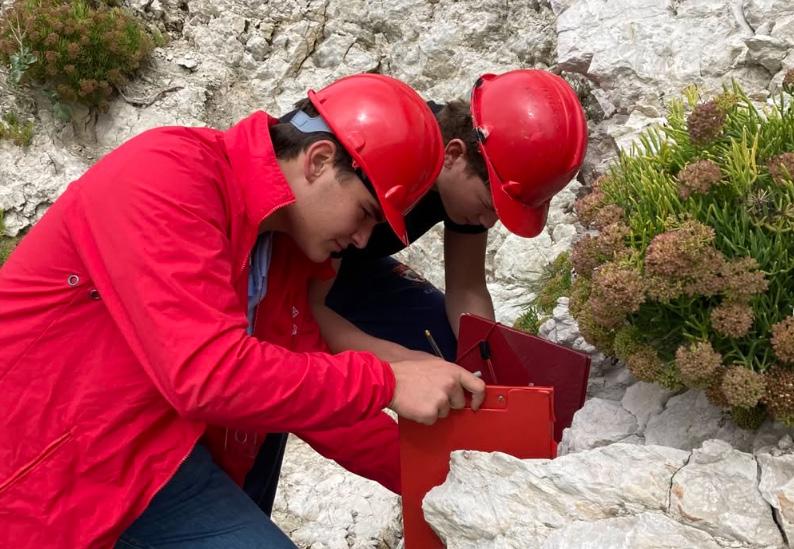
ECONOMICS
Why study Economics at A-Level?
Economics is present in every aspect of our lives so studying the subject gives students a generalist understanding of the world and its workings. It frames most if not all the choices that individuals, firms and governments have to make.
Economics builds the knowledge and skills needed to understand and analyse data, think critically about issues and make informed judgements.
Classes are a perfect forum to discuss real-world issues and will suit those who like to stay up to date with current affairs.
Economics courses at university are popular with Radleians having enjoyed the subject at A-Level and due to the well-established graduate salary premium it garners.
What are the key features of A-Level Economics?
The course is split in two parts; Microeconomics and Macroeconomics.
1. Microeconomics
• How markets work, how they go wrong and how the government can intervene.
• The role of behavioural economics in explaining seemingly irrational decision making.
• How the structure of a market can determine the outcomes for the firms and consumers involved.
• Labour markets and the impacts of dominant employers and trade unions.
• Causes, consequences and government interventions regarding poverty and inequality.
2. Macroeconomics
• How to judge whether an economy is performing well and the mechanisms by which governments manage their economy.
• The impacts of free trade and protectionism.
• Assessing a country’s level of economic development and why some countries struggle to develop.
• The role of financial markets in economies and the consequences of regulation and deregulation.
Whilst Economics at university is usually heavily mathematical, the A-Level course is primarily assessed through essays. The mathematical elements include calculating percentage change and interpreting data from charts and tables. Whilst there is no need to be a mathematical expert, being comfortable with using numbers and extended writing is important.
You can read the full specification here.
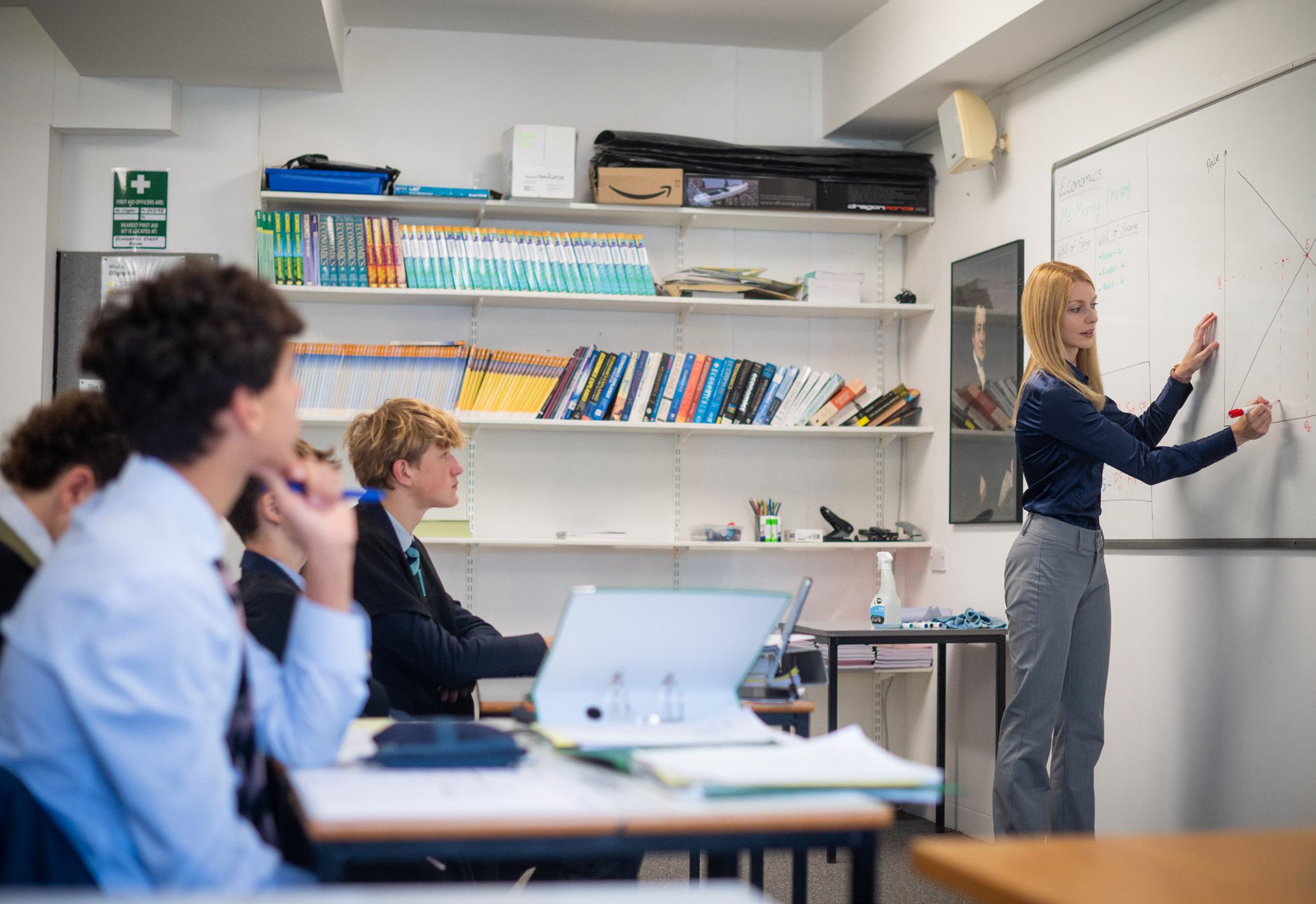
ENGLISH
Why study English at A-Level?
Sixth Form English students love to read, interpret and debate. They gain expertise in writing with force and flair and justifying arguments with evidence. Sometimes they can make imaginative leaps and connections between quite different texts. They’re confident in researching and weighing up the views of critics and other readers. They are experts in paying close attention to words and their nuances, patterns, sounds and tone. They think about how culture, religion and contexts shape writers’ decisions. It’s a subject where your opinions matter and you bring creativity and fun to class in your willingness to respond and discuss. Those students who study history, theology and philosophy, drama, languages, classics, or history of art will find that these subjects have great potential to enrich their ability to excel in English and vice versa.
Whether you want to write and persuade with impact in the business world; argue with flair and confidence; understand the world around you and the potential power of language, or just attain truly impressive A-Level results in an academic subject viewed highly by universities, English is a route to all these destinations.
What are the key features of the English A-Level course?
At English A-Level, students explore texts from a range covering the last six hundred years. Boys will be introduced to some of the most vital poets, playwrights and novelists ever to write in English, as well as to emerging voices, destined to define the literary landscape of the 21st Century.
The course is taught by paired dons, each covering half the content. Boys begin the Michaelmas Term of Lower Sixth by studying ‘Other Drama’, which includes plays spanning Dr Faustus to Waiting for Godot, alongside a selection from Forward’s Poems of the Decade, which offers an extraordinary breadth of work from some of the century’s most urgent poetic voices. Next comes an exploration of Shakespeare on one half of the course, and the teaching of paired novels on the other. In the Upper Sixth, boys embark on the ‘Named Poet or Movement’ component, in which Larkin, Eliot, Keats, Yeats, Wordsworth and others are represented. At the same time, the extended coursework begins; boys are often given free choice over the question and text here, with dons offering bespoke support throughout the course.
In discursive, seminar-style lessons, English students learn to analyse the effects of literary language, form and structure in conjunction with an understanding of the contexts which produce these great works. Lessons are relaxed and informal, often centred around discovery rather than instruction. The course is designed to develop curiosity and a sharp eye for interpretation. Students are encouraged to be independent-minded; boys ‘design’ elements of the course themselves, in the questions they choose to explore, the critical angles they pursue and the texts on which they choose to specialise in their coursework. The coursework, on any two texts written in English, offers almost unlimited potential.
The course is taught by a team of dons, all students of the subject themselves to degree level and beyond. Lessons tend towards exploration and guidance, rather than dictation. Dons inspire boys to find their method, and to employ taught skills to solve problems on the page. This approach reflects the intellectual autonomy which is a necessity for university and professional life. Of course, the department offers boys individual attention; one of the most enriching aspects of studying the subject at A-Level is the relationships which form through collaboration between boys and between boys and dons. Students from the Upper Sixth cohort are encouraged to support and advise those in the year below. The department aims to develop young men who are both independent and supportive of one another.
To that end, A-Level students will take part in a variety of trips and events, some organised by the department, others by boys themselves. The course is supported by regular excursions to the Royal Shakespeare Company, The National Theatre, and The Globe. Visits to College from poets, authors, academics and actors (including Simon Armitage, Mick Herron, Emma Smith and Dominic West) are also geared to developing students with a deep cultural capital from which to draw. Trips further afield, including to Belgium, Paris and Dublin allow boys to study literature ‘in the field’, to walk in the footsteps of authors and to experiment with their own creative responses to the subject. Initiatives within the department are designed with the A-Level course, university study and professional life in mind.
You can read the full specification here
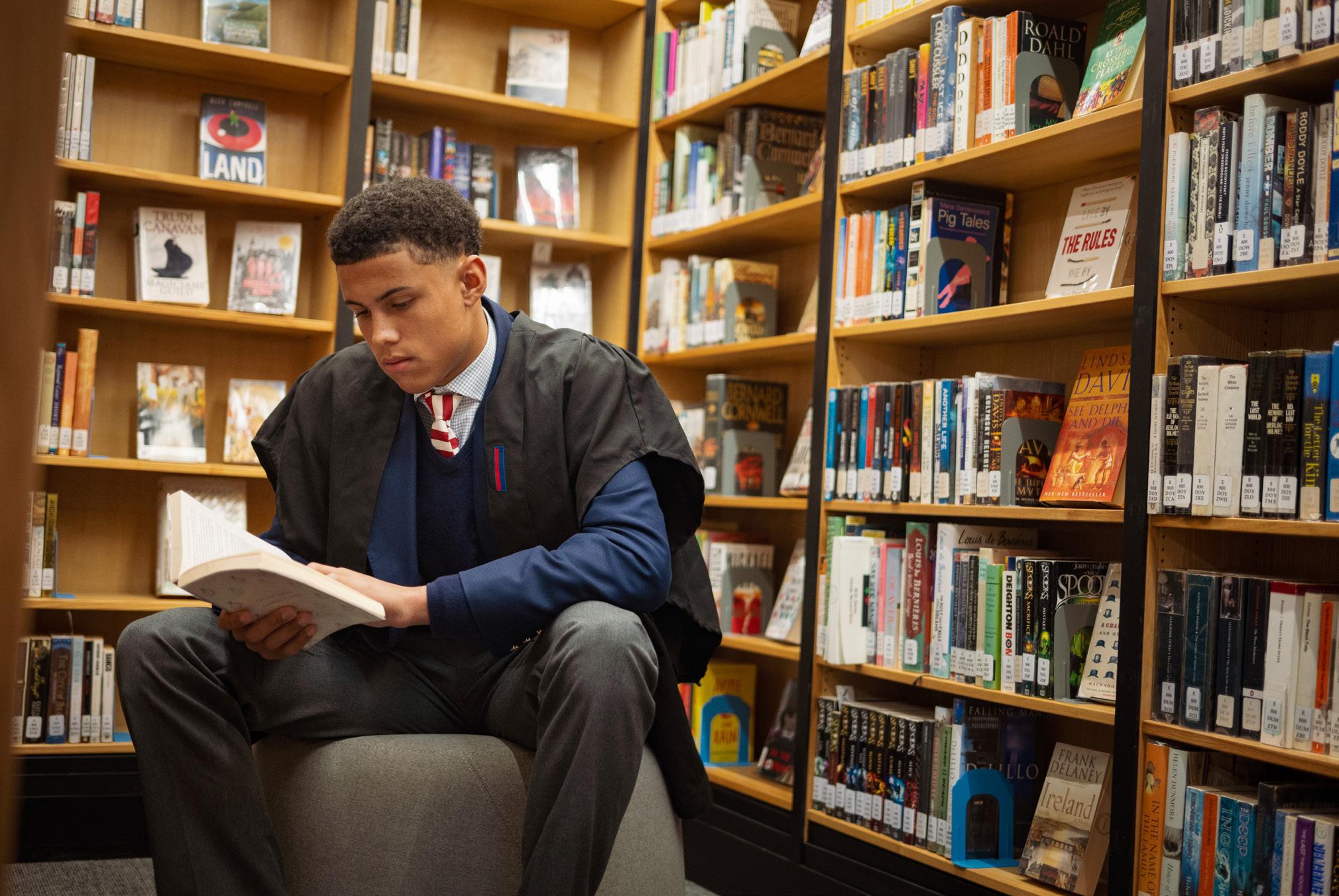
FRENCH
Why study French at A-Level?
There are numerous advantages to studying French at A-Level, including the opportunity to promote flexible thought and an appreciation of different points of view – skills that are increasingly important in an unpredictable world. Further benefits can be gained from studying the literature, culture and history of other countries, especially for those who wish to become truly global citizens.
The A-Level course rewards students who actively seek to engage with the world around them and enjoy it to the full. An A-Level in French also offers a practical skill set: on leaving Radley, students can combine further linguistic study with a number of more vocational degree courses at university. Beyond that, the ability to speak a foreign language remains a highly desirable skill among employers and can make a CV stand out from the crowd. However, the real attraction for many is the chance to build on an enthusiasm for the language and to develop advanced spoken interaction, a wide vocabulary, and a broad range of comprehension and translation skills.
What are the key features of the French A-Level course?
At A-Level, students work on mastering fluency, accuracy and sophistication in their use of the language. They also delve into the culture of the countries that speak French. The A-Level course can be separated into distinct themes and skills. The four themes are as follows:
Theme 1: Changes in French society; Theme 2: Political and artistic culture in French-speaking countries; Theme 3: Immigration and multicultural French society; Theme 4: Occupation and Resistance in France during World War 2.
These themes are studied alongside two works (one literary text and one film), examined through two external papers and a speaking assessment conducted by the teacher. The course rewards creativity: assessments place an emphasis on spontaneity and grammar while providing plenty of opportunities for students to apply their knowledge independently. Students are encouraged to develop ideas, using language to persuade and to analyse, and to give critical responses in their writing and speaking.
The three papers students sit for French A-Level are:
Paper 1: Comprehension. The listening and reading comprehension exercises require an ability to infer meaning as well as understand more familiar texts. The translation exercise (into English) requires precise grammatical knowledge and a sensitivity to meaning and register.
Paper 2: Writing. Two essays in the target language, one on a literary work and one on a film. Students also complete a translation into French.
Paper 3: Speaking. Divided into two parts, this examination assesses students’ knowledge on the culture of France and other French-speaking countries. For Task 1, students have to answer questions on the different sub-themes studied in class (see list above). For Task 2, students present the results of an independent research project on a topic of their choice related to the target culture.
We offer weekly one-to-one sessions with our French assistant to complement work done in class. As well as helping to perfect accent and pronunciation, these sessions encourage students to see the language and cultural content they are studying as live concerns in an evolving world. An engagement with current affairs is fostered from the outset of the course.
In addition, there is a well-established French exchange with a lycée in Paris, which gives students the chance to stay with families, make friends and immerse themselves in French culture.
You can read the full specification here.
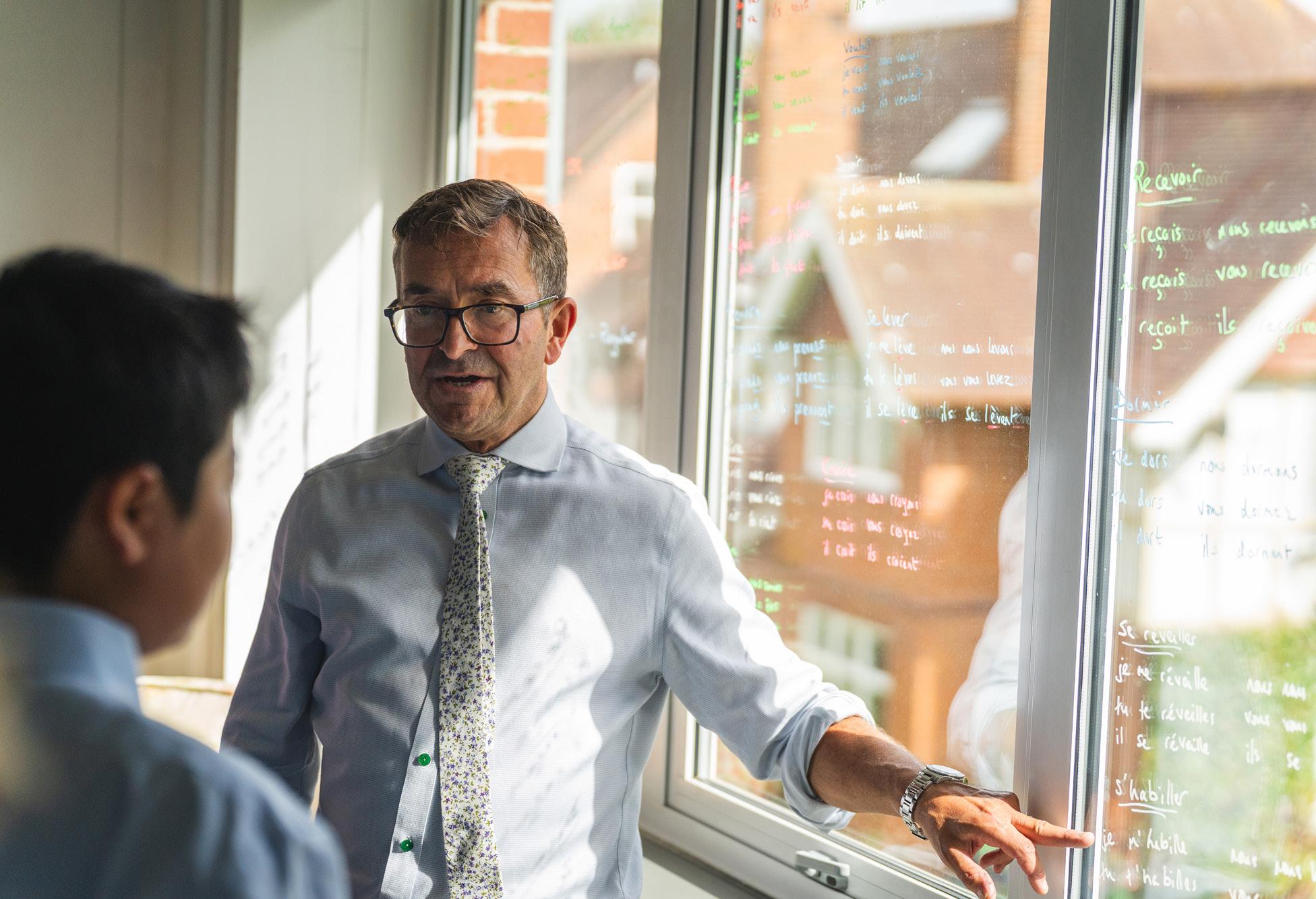
GEOGRAPHY
Why study Geography at A-Level?
Geography students are curious about how the world works. They think about the connections between people, places and environments, and they enjoy exploring the forces that shape our planet. It is one of the few A-Level subjects that bridges the sciences and the arts, combining analytical use of data with extended writing and real-world investigation.
In Geography, students study the issues that dominate headlines and shape the future: climate change, geopolitics, migration, conflict and global health. They learn to analyse information, evaluate evidence and form persuasive, well-supported arguments. Geography students develop the ability to think critically and to communicate ideas with clarity and impact.
Universities and employers value geographers for their flexibility, problem-solving ability and awareness of global challenges. It opens pathways to careers in business, management consultancy, law, environmental science, technology, and many other fields.
Geography is the subject for students who want to understand the bigger picture and play a part in shaping the world to come.
What are the key features of the Geography A-Level course?
The A-Level course explores how human and physical processes interact to shape our world. Assessment is through three examinations and one piece of coursework. These cover the full breadth of geography: human, physical and the connections between them.
• Physical Systems (22%) – Assessed through a 1.5-hour exam, this component explores ‘Coastal Landscape Systems’ and ‘Earth’s Life Support Systems’. Students study how natural processes shape landforms and examine the vital water and carbon cycles, considering global management strategies. Questions test analytical and evaluative skills, with a maximum of 16 marks.
• Human Interactions (22%) – Also assessed through a 1.5-hour exam, this paper investigates ‘Changing Spaces, Making Places’, ‘Migration’, and ‘Power and Borders’. Students explore how people and places are connected locally and globally, analysing how movement, power and identity shape our world. The ‘Power and Borders’ topic examines why countries argue over land and control, and how these global conflicts affect people today. Questions test analytical and evaluative skills, with a maximum of 16 marks.
• Geographical Debates (36%) – This 2.5-hour exam challenges students to engage with major global issues in Hazardous Earth and Disease Dilemmas. Concepts such as inequality, resilience and risk underpin the debates. This component also develops synoptic understanding, encouraging students to draw together ideas, themes and knowledge from across all areas of the A-Level course. Question lengths range from 3 to 33 marks, promoting extended, evaluative argument.
• Non-Examined Assessment (coursework) (20%) – This independent project (4,000–5,000 words) allows students to investigate a question of their own choice, linking to the A-Level specification. It develops research, data presentation and data analysis skills. A four-day fieldwork trip to Devon supports the collection of data for this investigation.
A-Level Geography includes exciting field trips that bring the subject to life. In February 2023, students visited Iceland, exploring dramatic volcanic landscapes, glaciers and geothermal features, while a trip to Norway is planned for February 2027. These experiences extend students’ geographical knowledge, deepen their understanding of physical and human processes, and allow them to see some of the world’s most spectacular landscapes firsthand.
Students are taught by two teachers, one focusing on the human aspects of the course and the other on the physical. Lessons are dynamic and rooted in real-world issues. Students learn to write with clarity and depth, use statistics to test ideas and build persuasive arguments in debate. They gain confidence working both independently and in teams — skills that are invaluable for success at university and beyond.
You can read the full specification here
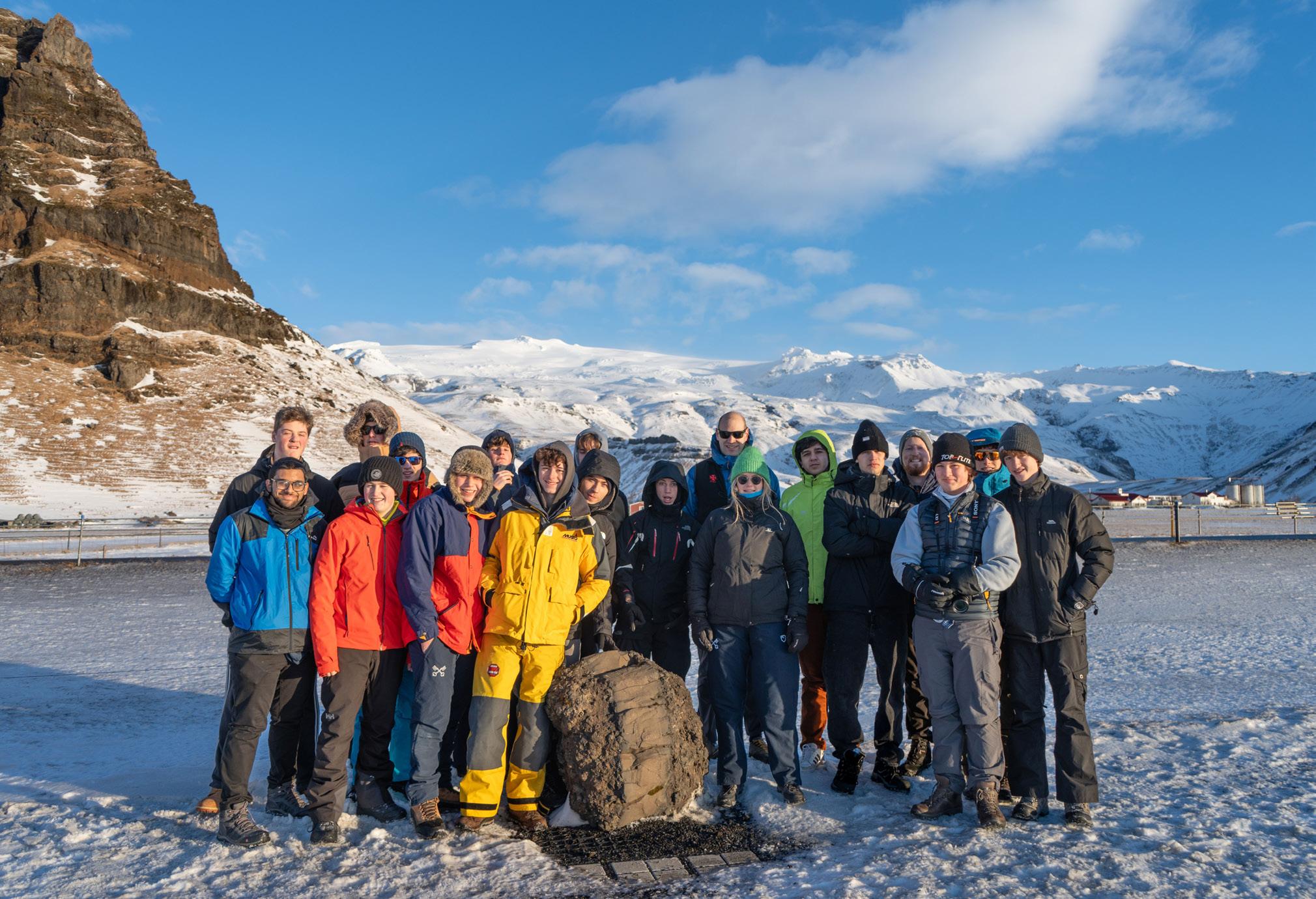
GERMAN
Why study German at A-Level?
An A-Level in German is a rich academic experience that brings many advantages in terms of university admission and future employment. German is the most in- demand language among British employers given the current shortage of specialists. Modern languages also lend themselves well to a combined honours degree involving a vocational subject. For many students, however, the real attraction is the chance to explore the intricacies of German grammar and vocabulary over two years, developing sensitivity and precision alongside an appreciation of German-speaking cultures.
In a more general sense, improving communication skills is a major benefit of studying a language. Students develop flexibility of thought and become adept at dealing with contrasting points of view – skills that are increasingly important. At the same time, they are brought into contact with current events, literature, film, historical topics and cultural issues, all of which is appealing to boys aspiring to become global citizens. The A-Level course rewards those who actively seek to engage with the world around them and enjoy it to the full.
What are the key features of the German A-Level course?
Students work to develop a high level of fluency, accuracy and sophistication in their use of the target language. In terms of thematic content, the course can be separated into four distinct areas:
1. Social developments in German-speaking Europe (environment, education, work)
2. Political and artistic culture (music, media, festivals)
3. Immigration and multicultural society
4. German reunification
These themes are studied in addition to two set works (one literary text and a film). The examinations involve two written papers and a speaking assessment. With that in mind, the course promotes individual thought and natural language use with an emphasis on spontaneity and grammar. Beyond the syllabus, there are opportunities for students to apply their knowledge in creative ways and to play devil’s advocate in seminars and debates. The broad aim is to encourage authentic interaction and the use of persuasive language when analysing issues through a critical lens.
There are three final papers:
Paper 1: Comprehension. The listening and reading comprehension exercises require the ability to infer meaning and to understand texts on familiar topics. A translation into English requires precise grammatical knowledge as well as a sensitivity to meaning and register.
Paper 2: Writing. Two essays in the target language: one on a literary work and one on a film. Students also complete a translation into German.
Paper 3: Speaking. This examination assesses students’ knowledge of the target culture. Task 1 involves questions on one of the thematic areas from the list above. For Task 2, students present the results of an independent research project on a topic of their choice related to Germany, Austria or Switzerland before discussing specific points related to their findings.
A weekly one-to-one session with a native language assistant complements work done in class and encourages students to appreciate the value of the language and topics they are learning. We expect students to take an interest in the news and to challenge established points of view. In addition, the department arranges a variety of extension activities both in and out of school, including a partnership with a school in Germany, cultural events and trips. These give students the chance to stay with families, make friends and really immerse themselves in the culture while improving their linguistic skills.
You can read the full specification here
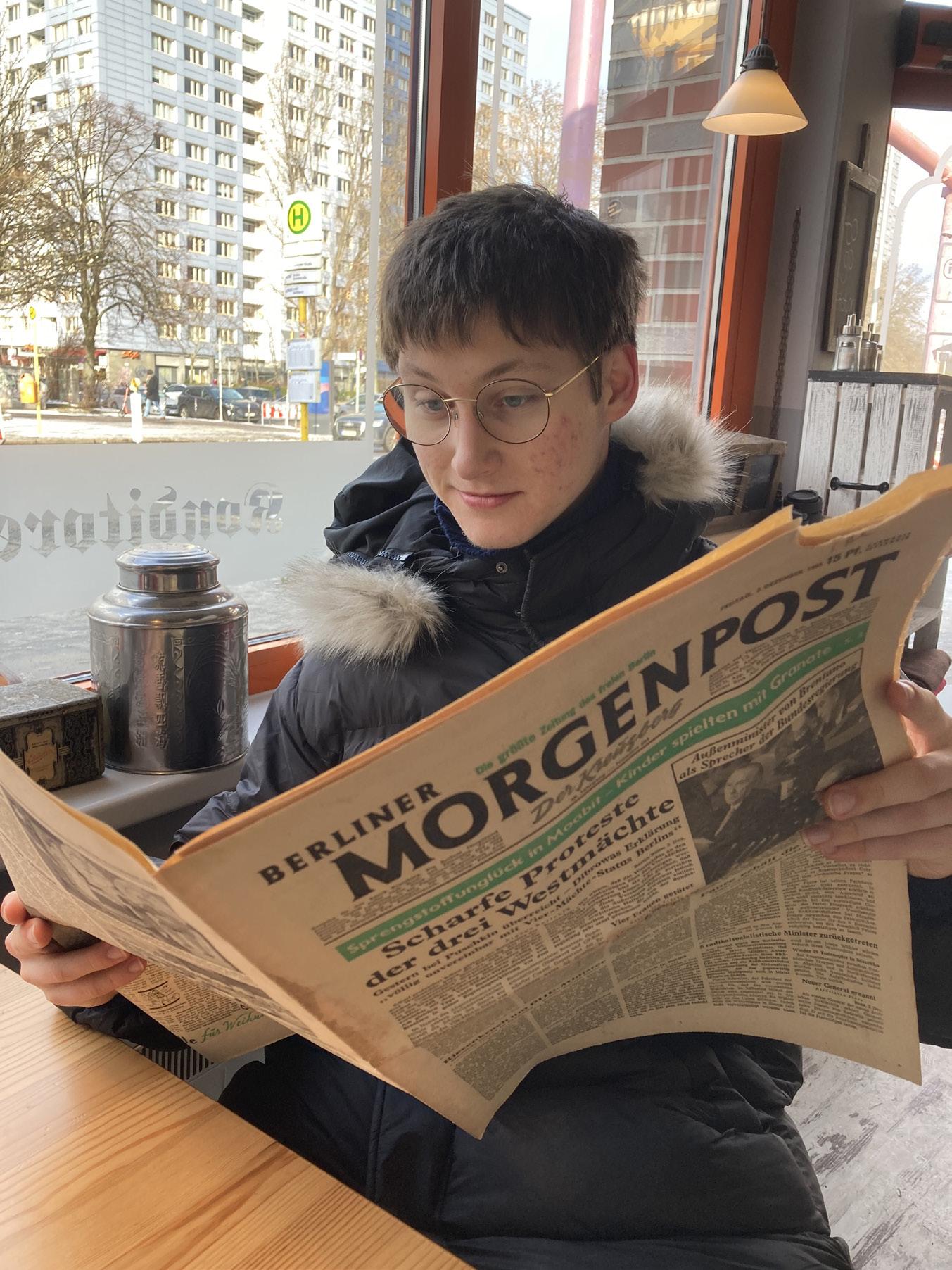
HISTORY
Why study History at A-Level?
History helps you to understand the actions of mankind, through the study of historical examples, and develops the skills required to interpret human information and develop your own opinions, before presenting them coherently. At A-Level, boys will be intellectually stretched by being asked to explore the nuances of the past and by being taken to eras more remote than those at GCSE. It is a great trainer for those who will work in careers that involve interactions between people, whether in person or through written communication - hence the high number of government ministers, civil servants, lawyers and businessmen who have studied history. It is also fascinating to explore social, economic and political developments, which help explain the world we see today.
What are the key features of the History A-Level course?
We offer topics which have kept boys fascinated for many years. We study the Edexcel 9HI0 History A-Level (2017 specification). The topics we currently offer are:
Unit 1: Britain 1625-1701. Revisit the Stuart era, when Charles I lost his head and Cromwell ruled a republic until the Restoration. Explore the struggles between crown and parliament alongside the ongoing influence of the church, and understand how Britain emerged as an economic superpower. Consider also the Glorious Revolution of 1688-89 and whether it was truly revolutionary.
Unit 2: France in Revolution 1774-1799. Return to the most famous of revolutions, when Louis XVI failed as both an absolute monarch and as a constitutional one, before the first French republicans spilled the blood of their own citizens during the Terror and, after the Directors’ attempt to rule failed, Napoleon came riding in. Explore the ideas of the enlightenment and the attempts to create a modern democratic system.
Unit 3: Germany, 1871-1990: United, Divided and Reunited. From the economic and military powerhouse of Bismarck’s newly united Germany in the 1870s, to the challenges of the First World War and the political instability and violence of the early Weimar years, to the Nazi seizure of power in the 1930s, to managing the Cold War division of Germany and the process of its later reunification, explore Europe’s ‘German problem’ and its consequences.
Unit 4: Coursework. An enriching experience that requires boys to read widely around a controversial period of history before joining in with the argument and reaching their own conclusions. Boys will develop skills in the following key areas:
• The analysis of historical events - considering the relationship between the actions and events of the past, such as by looking at cause and effect, change, comparison and significance. They will develop an understanding of how individuals, groups, ideas and events have interacted to affect the course of history.
• The formulation and presentation of coherent arguments - in person, through classroom debates, and on paper, through essays.
• The analysis and evaluation of documentary evidence contemporary to the period studied. This is a challenging but accessible skill which requires boys to consider what they might learn from documents by considering them in the light of their contextual knowledge.
• The analysis and evaluation of historical arguments.
• The ability to sift information for what matters and recognise links with the present.
You can read the full specification here.
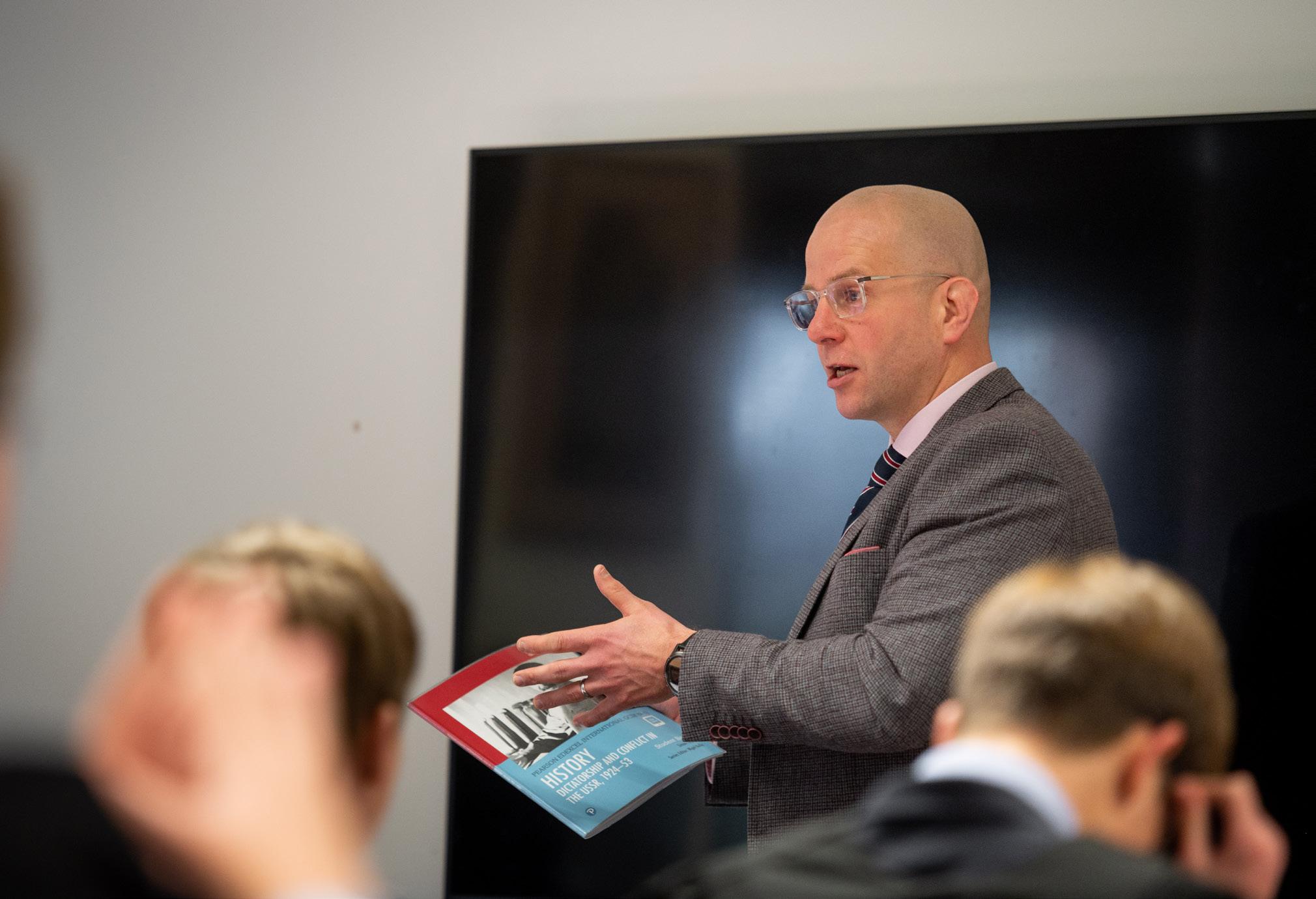
HISTORY OF ART
Why study History of Art at A-Level?
History of Art is a rigorous, challenging and interdisciplinary humanities subject, bringing together not only art and history but also elements of classics, politics, theology, philosophy, archaeology and anthropology.
In essence, studying art and architecture enables us to understand the world around us: to make sense of both the past and the present. It seeks to understand people as individuals and as societies by studying human creativity and intellectual history. It allows us to learn about people’s behaviours, beliefs and values. It is about so much more than just how things look.
The A-Level is a natural complement to humanities disciplines such as History, Theology and English (indeed many students often make cross-disciplinary links and incorporate material from their art historical studies into other subjects, and vice-versa). Many art historians are also linguists and find that the disciplines mutually enrich each other. In addition, boys combine their study of History of Art with subjects as varied as Biology, Geography, Geology, Maths, Music and more!
History of Art teaches and hones a number of skills valuable in higher education and in the workplace: studying art history strengthens critical thinking and analysis through exposure to a range of sources. By studying objects and their associated texts, you will perfect your skills of understanding, interpretation and synthesis. Learning to discuss visual or historical information orally or textually with clarity and precision improves communication skills.
Every year, a large proportion of Radley’s art historians go on to pursue the subject at top universities, in single or combined courses. Even if you do not study it at university, an A-Level in History of Art is well-respected and provides an excellent grounding for work in the cultural sector (including the film industry, theatre, fashion, museums, auction houses, etc.). It is also valued in advertising, architecture, insurance, journalism, law, banking, education… History of Art can take you wherever you want it to!
There is no practical requirement for this A-Level - it is a Humanities text-based subject. Some students find that being a practising artist helps them, but most art historians aren’t!
What are the key features of the History of Art A-Level course?
The course consists of distinct units, all assessed by examination in two papers (no coursework). You will study:
- Visual analysis: developing skills of visual literacy to understand any visual stimulus (painting, advertising, sculpture, architecture, etc).
- The Italian Renaissance: how artists in Florence, Rome and Venice developed some of the great masterpieces we still love today.
- The late nineteenth century: how the rapidly changing world (industrialisation, empire, political tumult) revolutionised the art world.
- War in Art and Architecture: how conflict has impacted art and artists, with a special focus on the Napoleonic Wars, First World War and the Iraq War.
- Identities in Art and Architecture: how individuals and groups express aspects of themselves – their gender, religion, sexual orientation, nationality, for example.
You can read the full specification here.

LATIN
Why study Latin at A-Level?
Latin A-Level offers a challenging and varied course that suits boys who have done well in the subject at GCSE. It requires proficiency both in translating to and from Latin, and in writing about ancient texts in a literary-critical manner. It is a very well-respected and traditional A-Level that requires rigorous academic standards and is, in most cases, a requirement for Radleians to study traditional Classics degree courses at university. That said, in recent years, boys who have taken maths and science subjects at A-Level, have also enjoyed taking Latin as a fourth option. Latin A-Level offers a fascinating insight into the ancient world and its culture through encountering texts in their original language.
What are the key features of the Latin A-Level course?
We use OCR’s courses for Latin, Greek, and Classical Civilisation. The course is split in half into two language components and two literature components. There is an unseen paper, worth 100 marks, which contains both a prose and a verse unseen translation, with very little or no adaption from original authors. There is also a 50-mark paper in which we prepare for the prose composition option, where candidates translate a short passage of English prose into Latin. The remaining 150 marks are divided between two literature papers, one verse and one prose, in both of which either one or two set texts are studied in a manner similar to that employed at GCSE, but with a view to answering questions at greater length and in greater depth. The key questions involve 15-mark commentaries on the literary effectiveness of a passage, and a 20-mark essay on the text and wider literary themes (from reading more of the text in English) in one author. Recently, we have studied Aeneid book 12 and book 2, the poems of Catullus, and prose works by Cicero and Tacitus. Wider themes have included heroism in The Aeneid, Cicero’s oratorical techniques, and characterisation in Tacitus.
Latin is not an easy A-Level but is very satisfying for boys who are strong linguists and interested in literary appreciation. As with Greek, Latin A-Level would be a particularly well-regarded addition to one’s CV or UCAS application.
You can read the full specification here.

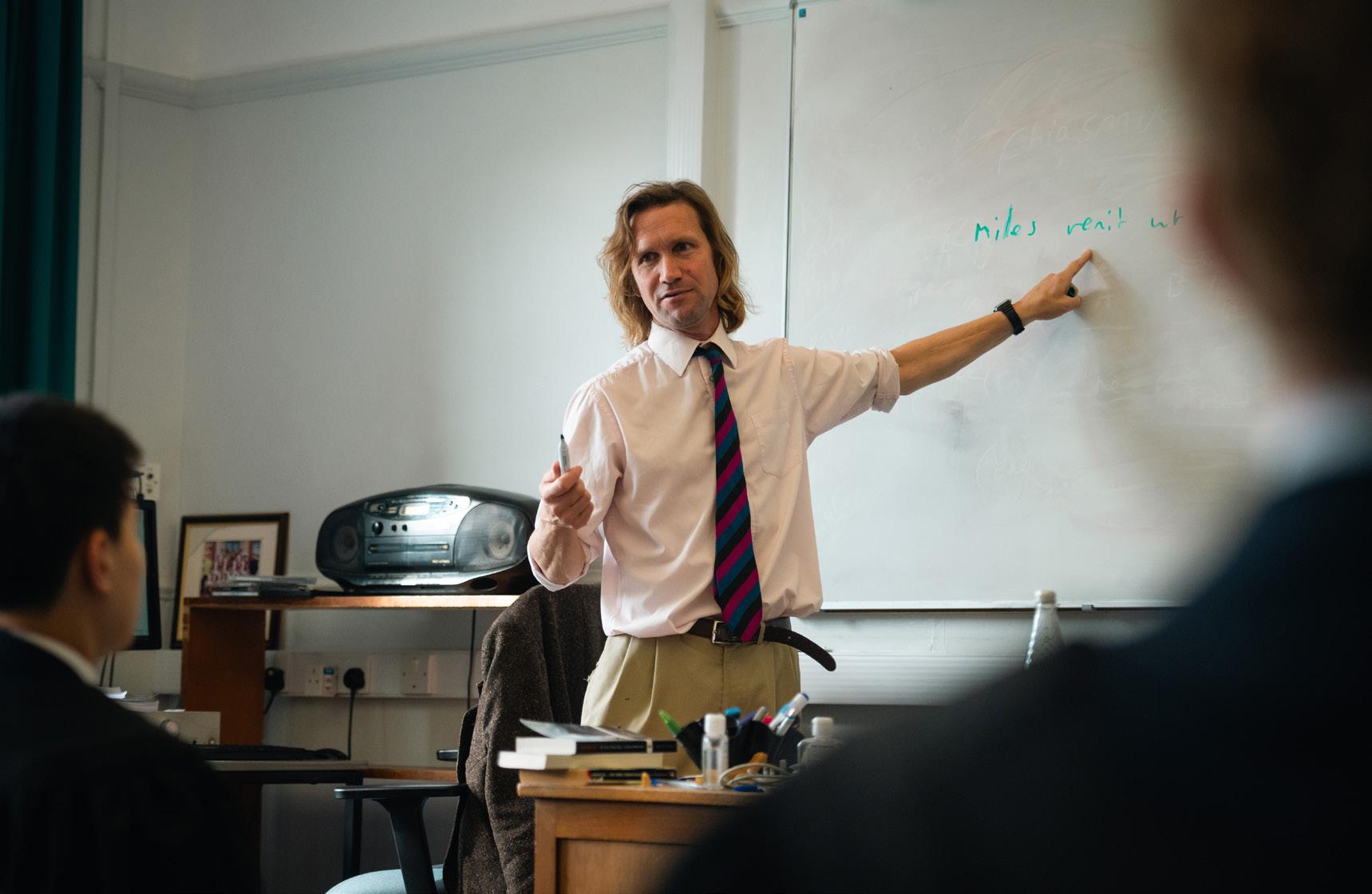
MATHS
Why
study Maths/Further Maths at A-Level?
There are lots of good reasons for choosing to study Maths at A-Level. For the Scientist, the Engineer, the Economist,… those reasons are clear. But, because of its intrinsic logic and beauty, the subject also sits comfortably alongside what is basically an Arts or a Languages combination. So we find choices like English, History and Maths, or Latin, Greek and Maths, as well as various permutations around those themes.
What are the key features of the Maths/Further Maths A-Level courses?
The course changed in 2017, and now any candidate in Single Maths will cover common material in Pure Maths, Mechanics and Statistics, regardless of exam board. Two-thirds of the work is in Pure Maths, with the rest being shared equally between Mechanics and Statistics. The other change in 2017 was that questions were set with less structure. Candidates were required to think for themselves far more than had been the case in previous years. The upshot of this is that some students find the course very demanding. Hard work alone is not enough. In order to be successful a candidate needs some natural talent. In 2019 a pass grade could be achieved with a mark of only 13% - a pretty depressing experience for anyone operating at that level. Nationally we have already seen a significant decline in the numbers opting for Maths at A-Level, and it is anticipated that the trend will continue.
At Radley we do not welcome this change. It means that some boys who, in the past, would have worked hard and gained a respectable grade in Maths at A-Level, are no longer suited to the course. Boys are strongly urged to listen to the advice of their Maths teacher before choosing the subject. Success in IGCSE does not automatically imply success at A-Level. Arguments like ‘I really like Maths’ or ‘I need Maths for my university course’ should be set against the reality that the new A-Level is very much more demanding than its predecessor.
That may all sound a bit negative. For the more gifted Mathematician the opposite is the case, and we offer the relish of a challenging and exciting course that helps to train the mind, and exploit academic potential. Indeed the best 30 or so Mathematicians each year opt for Further Maths. This is taught in the period equivalent of one and a half A-Levels, and results in two separate A-Levels – one in Single Maths and the other in Further Maths.
The Further Maths course is also two-thirds Pure Maths, with the rest being shared equally between Mechanics and Statistics We aim to stretch the more able Mathematician by introducing new topics such as Complex Numbers, Matrices, Polar Coordinate systems, Differential Equations,… Boys will take Maths and Further Maths alongside two other A-Levels, and the comment about being a tool for those who need it for their further study, or just a nice mix with an Arts or Language combination, applies equally.
It should be noted that any boy intending to read Maths, Computing, Engineering, Physics or Natural Sciences at Oxford or Cambridge must take Further Maths. Chemists, Economists and Metallurgists would also be wise to go down the same road.
You can read the full specification for Single Maths here
You can read the full specification for Further Maths here.

MUSIC
Why study Music at A-Level?
Music A-Level is an exciting and rewarding course, unique in its combination of academic study and creative opportunity. The Edexcel A-Level course builds on the performing, composing, listening and appraising, and music technology skills developed at GCSE and gives pupils the opportunity to engage with, and increase awareness and appreciation of, the diverse heritage of music and to develop critical evaluation skills. A passion for music, the ability to perform on an instrument (ABRSM Grade VII), and basic keyboard skills are important prerequisites for the A-Level Music course.
What are the key features of the Music A-Level course?
Performing: At the end of the course pupils give a solo instrumental recital in front of an audience. In preparation for this, pupils do much work in their individual instrumental lessons. In addition, other members of the department (dons, VMTs, visiting consultants, and resident artists) provide individual solo and ensemble coaching.
Composing: There are two parts to this component: Stylistic Techniques and Free Composition. In preparing for the Stylistic Techniques examination, pupils study Chorale Harmonisation (chords and voice-leading). For the Free Composition component, pupils compose a four-minute instrumental work for a specified brief. In previous years, pupils have composed string trios to be performed alongside Schubert’s String Trio in B flat and works for piano, cor anglais and trumpet to be performed with Copland’s Quiet City. In this component, pupils have the opportunity to have their compositions recorded by professionals.
Listening and Appraising: A broad range of music is experienced which is structured around six prescribed Areas of Study:
1. Vocal Music
2. Instrumental Music
3. Music for Film
4. Popular Music and Jazz
5. Fusions
6. New Directions
Each Area of Study includes three sets works. During the course, pupils develop an in-depth understanding of musical elements, musical contexts and musical language, and learn to use a range of analytical tools. In this component, pupils learn how to write perceptively about music, in particular comparing, contrasting, assessing, evaluating and commentating, as appropriate, using correct musical vocabulary.
You can read the full specification here.
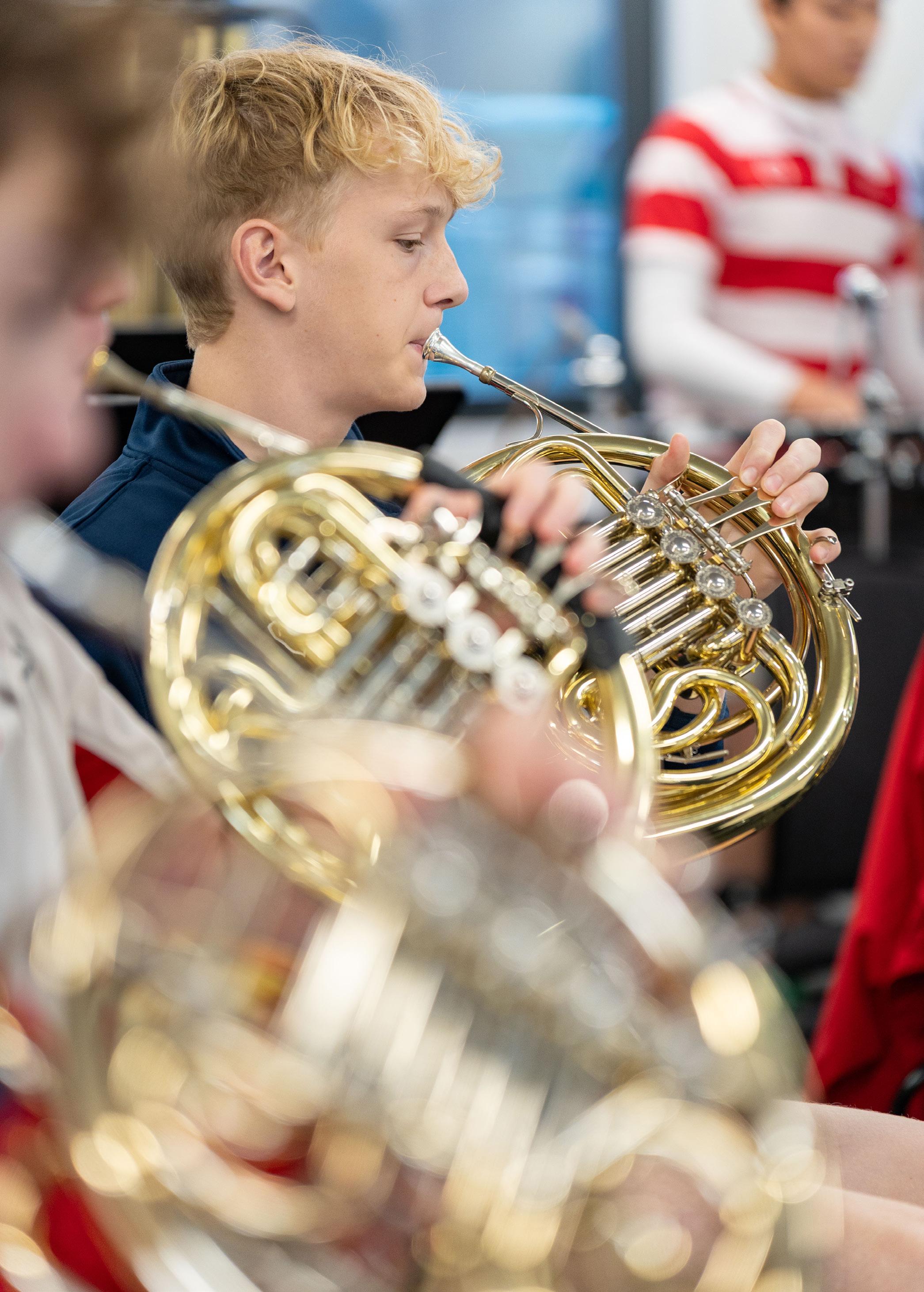
PHYSICS
Why study Physics at A-Level?
Physics is the very general study of the Universe, and the matter and interactions within, and aims to provide the most fundamental explanations possible. It encompasses scales from the smallest subatomic particle physics to the grandest cosmological questions. Studying Physics at A-Level will help you to start to think and reason like a physicist. You will understand and deploy a wider range of Physics models than at GCSE, and you will see and exploit the power of mathematical formulations.
A-Level Physics is challenging, but rewarding: the thinking and reasoning skills developed are highly valued and widely transferable across a huge range of university courses. A-Level physicists will develop an understanding of ‘core physics’ at successively deeper levels, each stage revealing new phenomena and greater insight into the behaviour of matter and radiation. They will develop numerical, practical, problem-solving and quantitatively critical thinking skills which will serve them well for futures in a wide variety of fields, including, but not limited to: further study in physics, engineering, mathematics, materials science, architecture, and medicine.
What are the key features of the Physics A-Level course?
The A-Level course teaching is fairly evenly split between two dons. We start the first term with some foundational work on estimation, units and the measurement of physical quantities. Thereafter, the first term is spent studying waves and electricity. In term two, we study mechanics, properties of materials, particle physics and quantum phenomena. In the third term, we study thermal physics and further mechanics. The first term in 6.2 includes nuclear physics, fields and capacitance. The final topic is the optional topic (presently astrophysics for all boys). After the Christmas of 6.2, each of the topics is revisited in turn in an exam-focused revision programme, leading to excellent results.
Physics is an empirical discipline: its explanations are grounded in observations and experimental measurements. Therefore, practical work is an important part of the A-Level course. Boys are encouraged to think about experiments and the results they obtain throughout. In addition to practical activities which dons will choose to do as part of the teaching of a topic, there are a number of ‘required practicals’ which boys complete during the course. The ongoing development of their practical skills and investigatory instincts are assessed by dons as they go along. As at GCSE, the Physics Department aims to teach well beyond the minimum requirements set out in the specification.
There are lots of opportunities to get involved in Physics outside the classroom. In addition to talks and trips. There is a research project on cosmic rays on which a number of boys have distinguished themselves in recent years. There is a Curriculum Extension Project which starts by studying the spectra of stars where boys can present their findings at a national conference. We take part in competitions, including those run by the British Physics Olympiad, Physics Bowl and the International Online Physics Brawl. There is a good track record of boys going to Oxbridge: typically, one third of Oxbridge ORs read Physics, Engineering, etc.
It is fair to say that Physics at A-Level is considerably more mathematical in content than Physics at GCSE, so boys who choose it ought to be good at, and enjoy, maths. Studying A-Level Physics without the invaluable support of A-Level Mathematics is difficult and not recommended.
A-Level Physics at Radley is a linear qualification. We follow the AQA specification, with three exams at the end of the 6.2 year.
You can read the full specification here
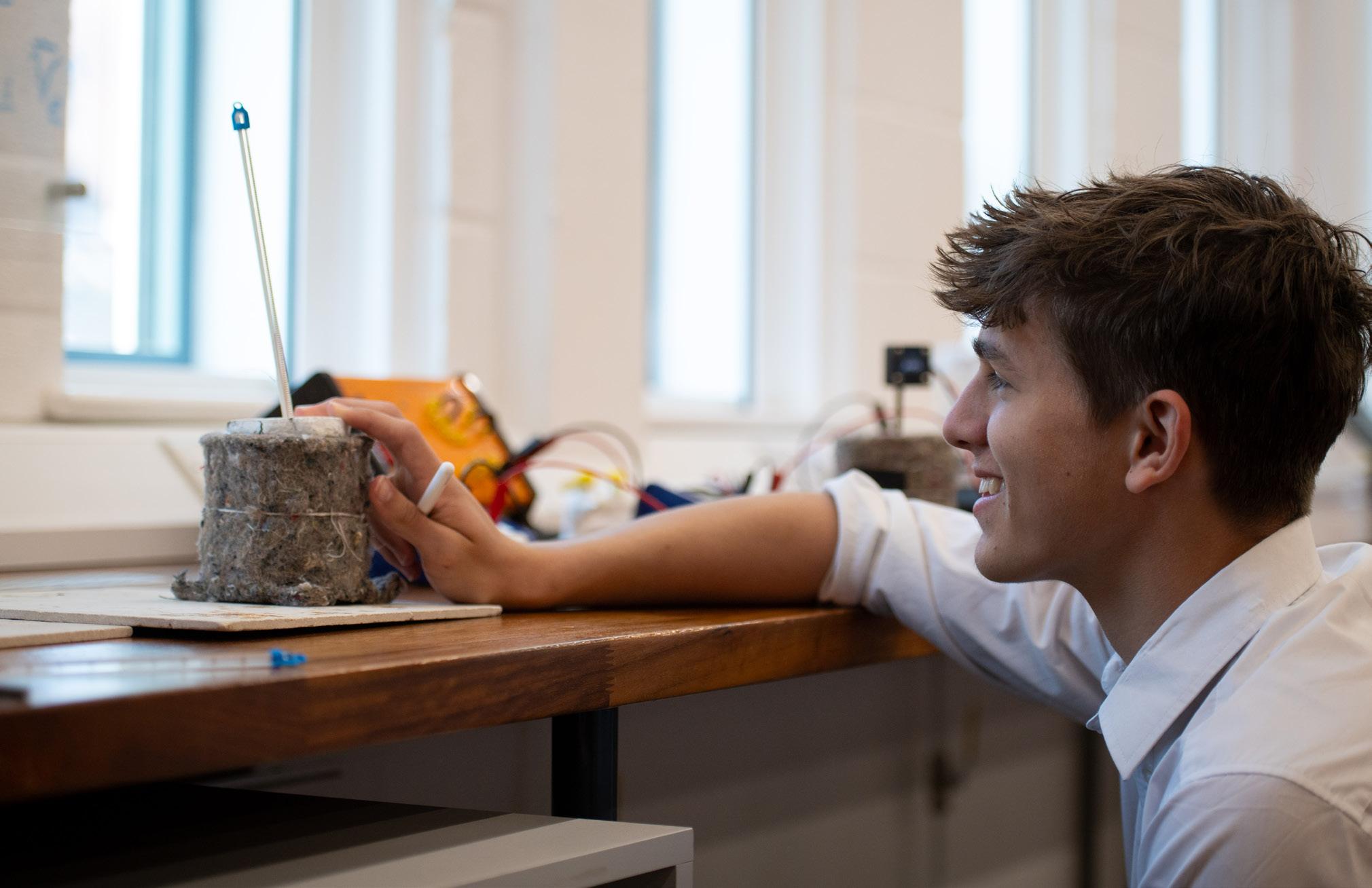
POLITICS
Why study Politics at A-Level?
The political world – certainly the UK and the US, at least – is confusing to many teenagers. In order to think clearly about the seeming chaos of our political environment it is essential that we help our boys to think critically and clearly. In all that we do at A-Level, we want to stretch the boys – and help them to think and write with clarity. And we want to encourage the capacity to move beyond partisan beliefs towards the study of what we could call ‘political science’. After two years, the boys may not have changed their views – but they will hold views that are based on evidence and that can be articulated with the intellectual rigour that marks out the work of a budding undergraduate.
What are the key features of the Politics A-Level course?
The A-Level has three components – which necessarily link together – and they are:
• The Government and Politics of the United Kingdom
• The Government and Politics of the United States and Comparative Politics
• Political Ideologies
The first two components allow the boys to explore the core institutional structures of these two nations, before moving towards a comparison of the two. For example, a debate that seems rather topical in the UK: should we create a UK Constitution that reflects the codified nature of the US Constitution? The third component allows the boys to explore the major ideologies at the heart of politics: liberalism; conservativism; socialism and so on. The former components combine empirical analysis with conceptual exploration. The study of ideologies is both philosophical in nature yet also seems to lead to some excellent class debate when we consider policy in terms of ideologies (for example: Who should pay for healthcare? Who should provide it? Who should get it?).
Political Science is one of the biggest undergraduate degree courses in the UK – often combined with International Relations or Economics. Many students aspire to combine Politics with Economics and with Philosophy – in the highly-regarded PPE degree offered at many of the best and highest-rated universities. While it is not the case that Politics A-Level is in any way a prerequisite for studying PPE, or combined politics honours degrees, it is certainly a useful foundation for an application to study these degrees.
Politics can sit well alongside many other subjects – it is the natural bedfellow of English, Economics, Theology and Philosophy, and History. Yet is shares subject matter with Human Geography and with elements of Classics (the study of ideologies). It can also serve as a good complementary subject alongside Maths and the Sciences. If boys are interested in the A-Level then try it – we have no problem with the students taking a taster-session for a week to see if the subject suits them.
You can read the full specification here.
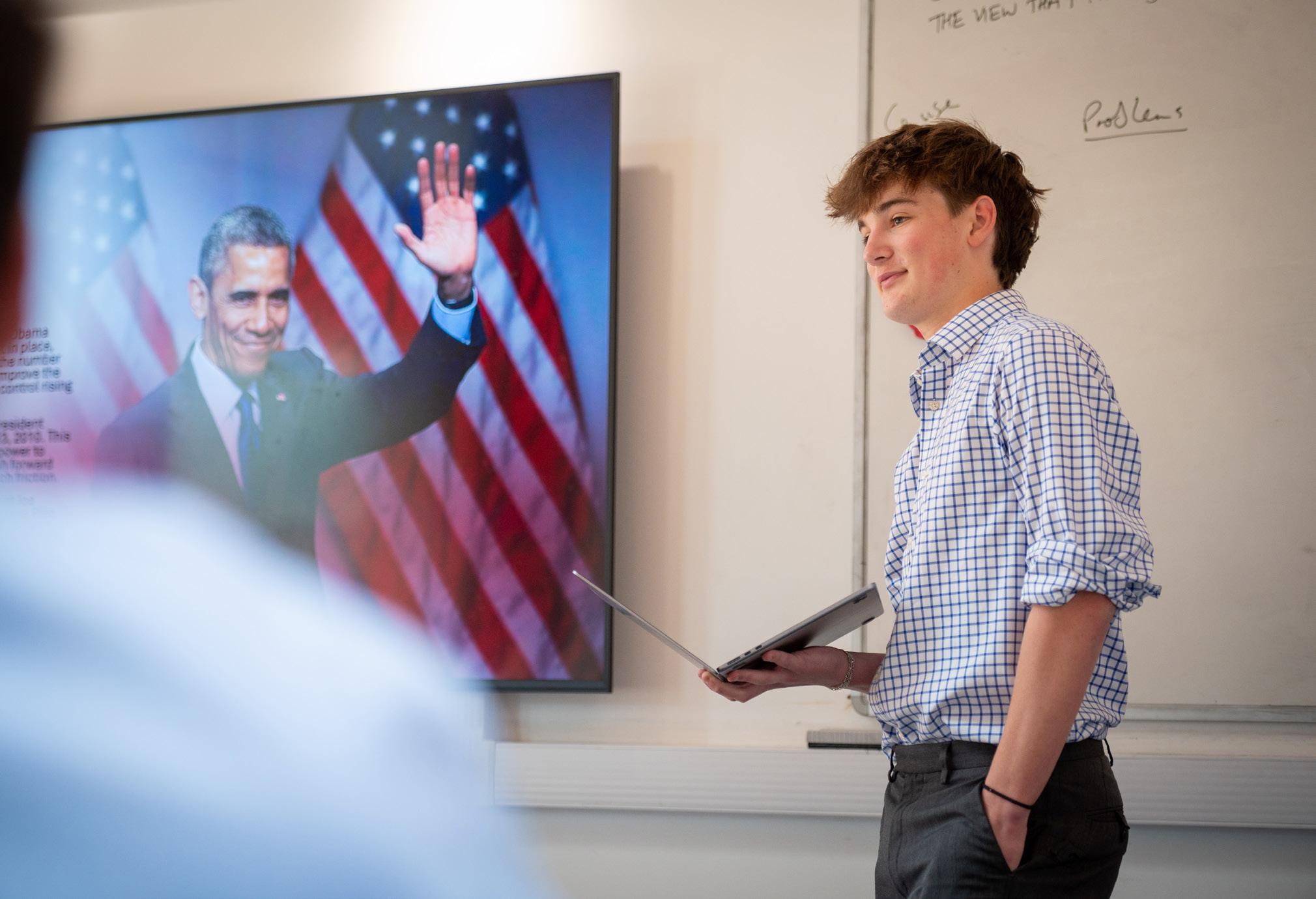
SPANISH
Why choose Spanish at A-Level?
Studying Spanish at A-Level opens doors – to the world, to people and to ideas.
Spanish is spoken by over 500 million people across more than 20 countries, making it one of the most influential global languages in business, culture and politics. Whether you dream of travelling, working abroad or standing out in the job market, Spanish gives you the confidence and cultural fluency to connect on a global scale.
Spanish A-Level also develops skills that every university and employer values: critical thinking, communication, adaptability and the ability to see the world from different perspectives. You’ll not just learn a language – you’ll learn how to think differently.
What are the key features of the Spanish A-Level course?
Small group learning and a weekly one-to-one session with our Spanish assistant help you build fluency and confidence in speaking.
A language trip to Madrid brings the language to life: those who take part are able to explore the city, study in small groups at a language school and stay with welcoming local families. We also have links to contacts in Costa Rica and Chile – amazing opportunities to use your Spanish in the real world.
Lessons are lively, varied and creative, combining film, literature, news, music and current affairs to show how language connects to the issues shaping our world today.
The course explores both the Spanish language and the cultures of the Spanish-speaking world, covering four broad themes:
Changes in Spanish society – family, work and tourism.
Political and artistic culture – music, media and festivals.
Immigration – advantages, challenges and the social and public reaction.
The Spanish Civil War, Franco’s dictatorship and the transition to democracy – how Spain became the modern country it is today.
Alongside these topics, you’ll enjoy films and literary works in Spanish that will allow you to discover new ways to think about storytelling, history and human experience.
Assessment:
Paper 1 – Listening, Reading and Translation into English
Comprehension and translation exercises develop your accuracy and understanding of authentic Spanish.
Paper 2 – Film and Literature Essays, Translation into Spanish
Two essays written in Spanish based on the works you study (Volver – Almodóvar, La Casa de Bernarda Alba – Lorca), followed by a translation into the target language.
Paper 3 – Speaking
A stimulating discussion on the course topics above plus your Independent Research Project, where you explore a topic of your choice related to the Spanish-speaking world.
Looking ahead to life after Radley, Spanish is one of the most soughtafter languages by employers. It pairs brilliantly with almost any university course – from Business and Law to History, Politics, Economics and Science. Our recent leavers have gone on to study at top universities including Oxbridge, with many continuing their language learning or using it as a stepping stone to international careers.
As one student put it: “Spanish A-Level has made me think about the world differently. It’s not just a language – it’s a new way of seeing things.”
You can read the full specification here.
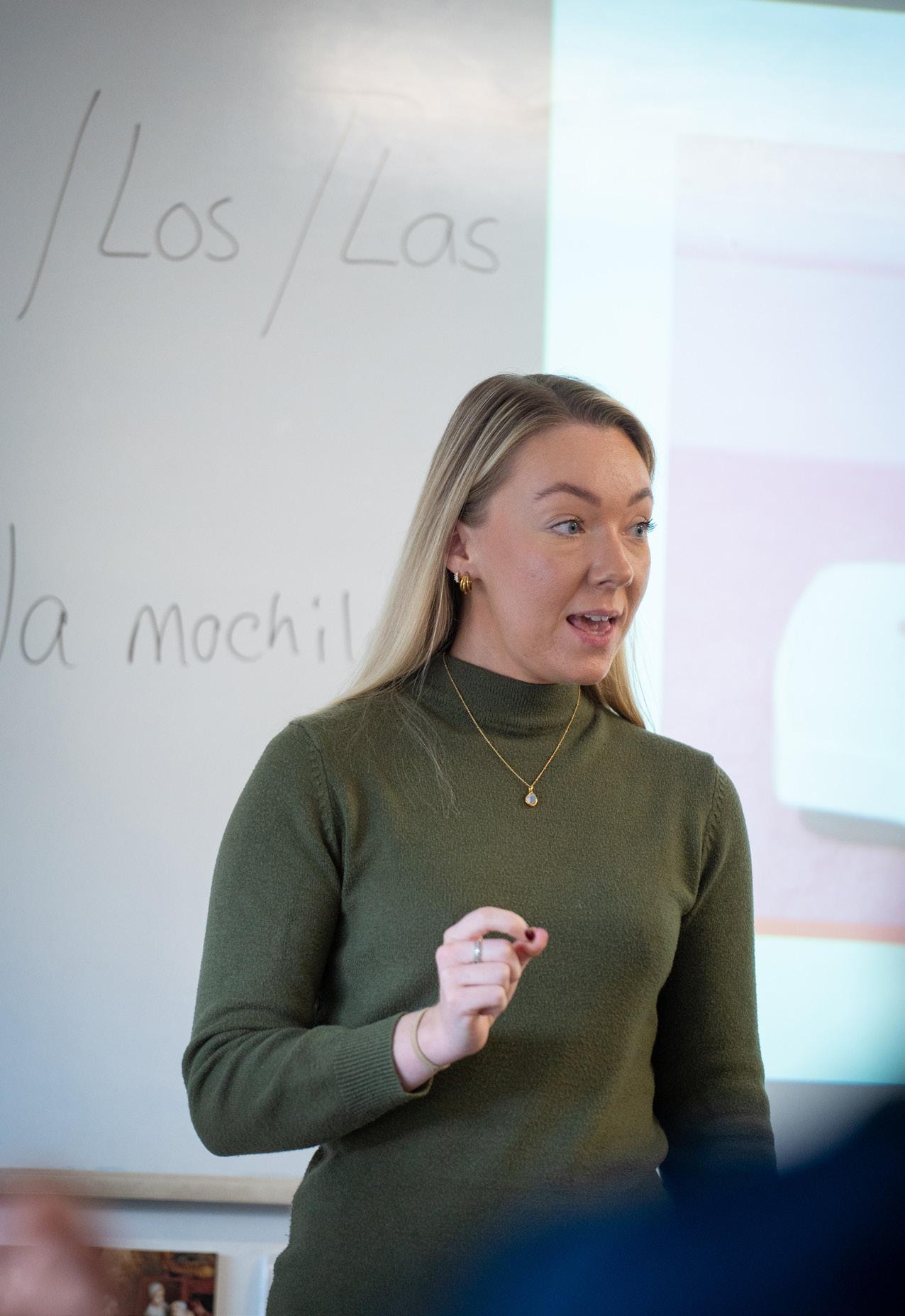
SPORTS SCIENCE
Why study Sports Science at A-Level?
Sports Science A-Level (also known as Academic PE) allows students to explore how the human body and mind work in sporting contexts and how sport interacts with society and culture. One of the most appealing aspects of the Sports Science A-Level is the unique interdisciplinary nature of the course, combining elements of Biology, Chemistry, Physics, Maths, Psychology, History and even Theology into one A-Level!
To study this subject, you will need to be a keen scientist and have a high level of sporting ability in at least one sport, ideally at county, academy or national standard. You will need to think critically, analyse data, and apply scientific principles to real-world performance. Alongside these useful and transferable skills, you will develop an advanced knowledge of anatomy, physiology, biomechanics and sports psychology, whilst also exploring cultural and ethical issues that shape modern sport.
Universities and employers alike value the academic rigour and versatility of Sports Science. It complements and pairs extremely well with A-Level subjects such as Biology, Chemistry, Physics, History, Geography, Earth Sciences and Computer Science, and opens doors to degrees and careers in sport science, sports medicine, physiotherapy, psychology and professional sports coaching to name a few. It is important to note that if you want to study Sport and Exercise Science at university you must choose another science subject at A-Level to apply. Regardless of future career path, students will develop a passion for physical activity, and the inherent health and well-being benefits it provides.
What are the key features of the Sports Science A-Level course?
Sports Science is an exciting new offering to Radleians from September 2026 onwards and the intention in the first year is to pilot one A-Level set following the OCR specification.
The A-Level course offers an exciting balance of academic theory (70%) and practical application (30%), allowing the development of both intellectual understanding and sporting expertise. Students will be examined linearly at the end of the two-year course across three papers, on the following components:
• Physiological Factors Affecting Performance – anatomy, exercise physiology and biomechanics (1 hour paper, 30%)
• Psychological Factors Affecting Performance – skill acquisition, motivation, and sports psychology (2-hour paper, 20%)
• Socio-Cultural and Contemporary Issues – ethics, technology, commercialisation, and modern sporting culture (2-hour paper, 20%)
These components are assessed through a mix of short-answer questions and extended-written responses, testing both breadth and depth of understanding across the three papers.
The Non-Examined Assessment (NEA):
The Non-Examined Assessment contributes to 30% of the overall A-Level grade and is split into two parts:
• The Practical Performance (15%) – assessed internally (but moderated externally) as a performer or coach in one sport, demonstrating technical accuracy, strategy, and understanding.
• The EAPI Assessment (15%) – a one-to-one Evaluation and Analysis for Performance Improvement recorded interview, whereby students must analyse an unseen “live” performance and propose realistic strategies for development. Assessed internally (but moderated externally).
The scientific focus on physical education plus the NEA component makes Sports Science A-Level a truly dynamic course; combining the science of performance, the psychology of excellence, and the culture of sport.
You can read the full specification here.
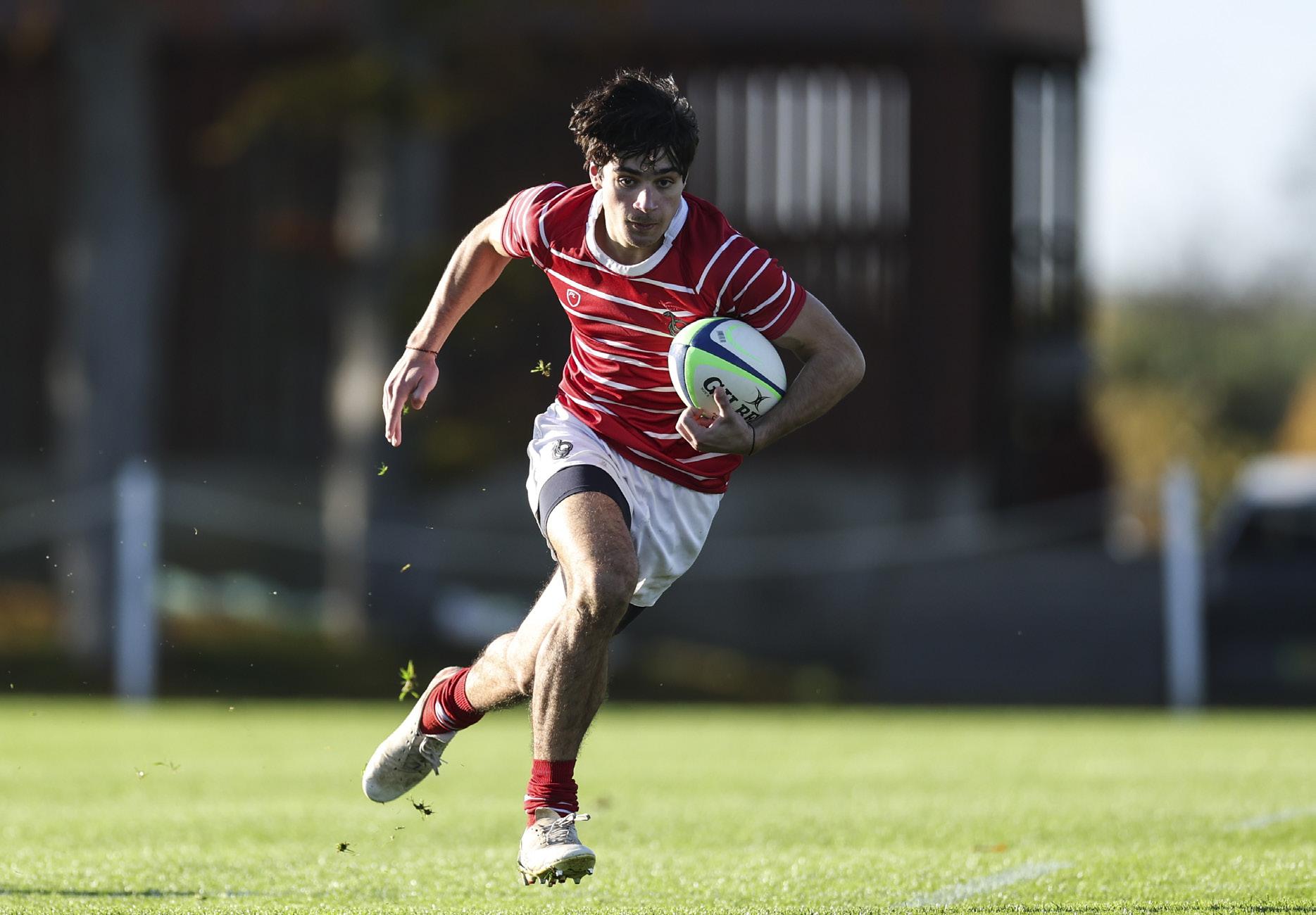
THEOLOGY AND PHILOSOPHY
Why study Theology and Philosophy at A-Level?
In A-Level Theology and Philosophy students are given the opportunity to study the great questions that can be asked about religion, God, life, truth, morality, and meaning. Students will encounter the influential ideas of many major philosophers and theologians throughout history. Throughout the course students are equipped to analyse philosophical, ethical and religious ideas, and to form their own justified points of view. There is lots of discussion and debate, and students will need to enjoy grappling with questions that do not have straightforward answers. Theology and Philosophy A-Level develops key skills which complement other A-Levels, and which also provide a strong basis for many university courses. These skills include sophisticated essay-writing, in-depth critical analysis and evaluation of different viewpoints, as well as forming logical and convincing arguments.
The course also develops many skills that are useful in life, beyond academic studies:
The study of major philosophical ideas which have shaped society provides a deeper understanding of the modern world, and the ability to analyse and critique the world we live in; The in-depth study of ethical theories and current ethical issues (including dilemmas such as euthanasia, abortion, gender, business ethics) equips students to engage knowledgably and intelligently with key debates that continue to feature in modern society, and are frequent themes in politics and the media; The in-depth study of some key areas of Christian doctrine gives students an understanding of ideas that have played a huge role in shaping Western culture, and that still exert influence today.
There is no requirement for students taking A-Level Religious Studies to have taken it at GCSE and students who have not taken it are at no disadvantage. There is also no need to have a personal religious commitment to enjoy the intellectual challenge of this subject.
What are the key features of the Theology and Philosophy A-Level course?
We follow the OCR Religious Studies A-Level specification, which consists of three papers:
Paper 1: Philosophy
Paper 2: Ethics
Paper 3: Developments in Christian Thought
Throughout the course students develop their skills of critical analysis in order to construct balanced, informed arguments and responses to religious, philosophical and ethical ideas.
In Paper 1 students study philosophical issues and questions including arguments regarding the existence or non-existence of God, the problems of evil and suffering, philosophical language, and much more. These philosophical issues are explored through the works of key philosophers throughout history.
In Paper 2 students explore influential ethical theories (such as Natural Law, Utilitarianism, Kantian Ethics etc) and address the question of whether morality truly exists and what it consists of. Ethical theory is also applied to current ethical dilemmas including business ethics, medical ethics and sexual ethics.
In Paper 3 students study the core theological ideas of Christianity and analyse their relevance to human nature today. There is a focus on the development of Christian theological ideas over time, and the way that Christianity has responded to and interacted with changing views in society over time (for example, on issues such as changing views of gender roles and multi-faith societies).
At the end of the course students will sit three exams, one for each paper. Each exam lasts for 2 hours. There is a standard format that each exam follows, and students practise essay-writing and exam technique frequently throughout their studies, ensuring that they are very confident and familiar with exam requirements.
You can read the full specification here.
